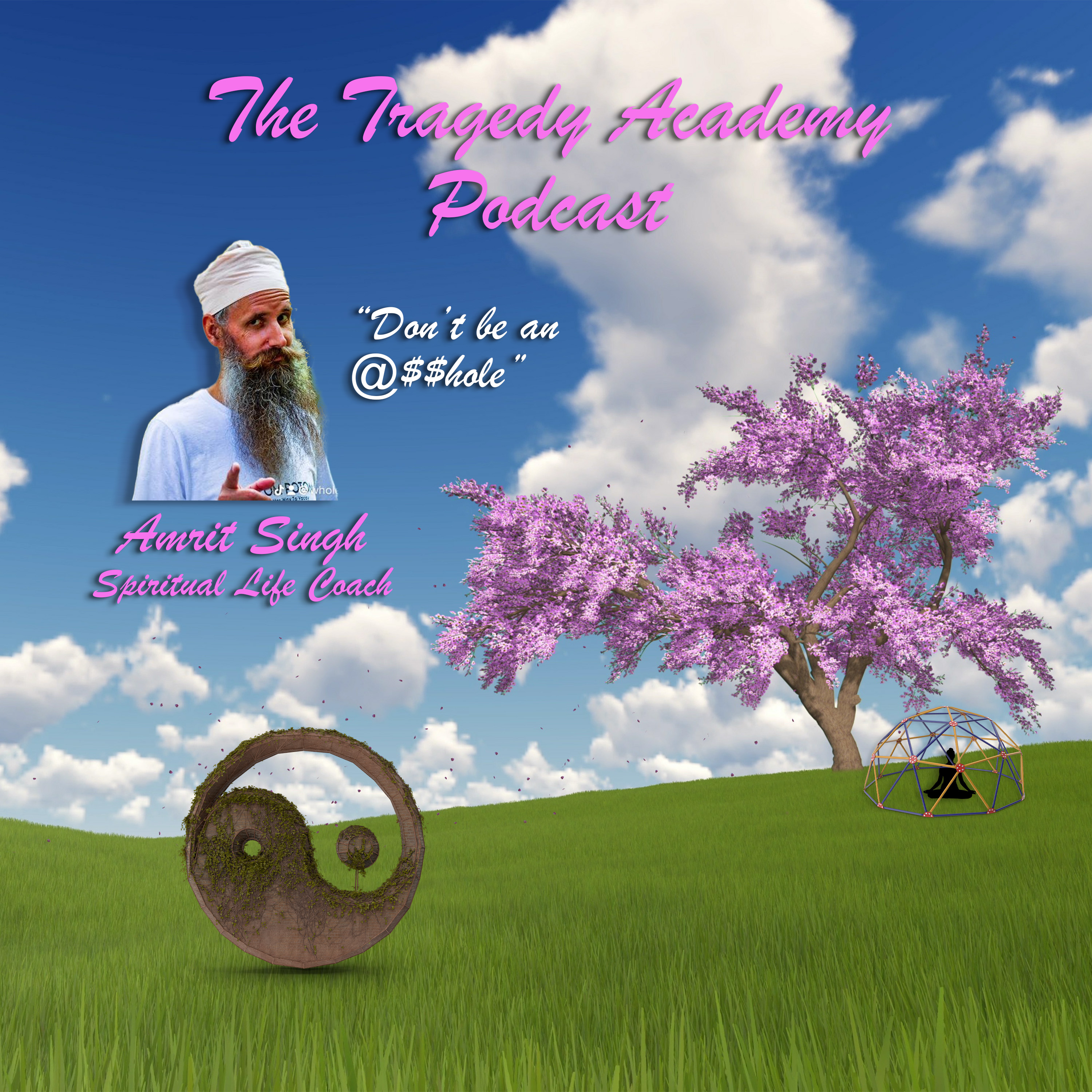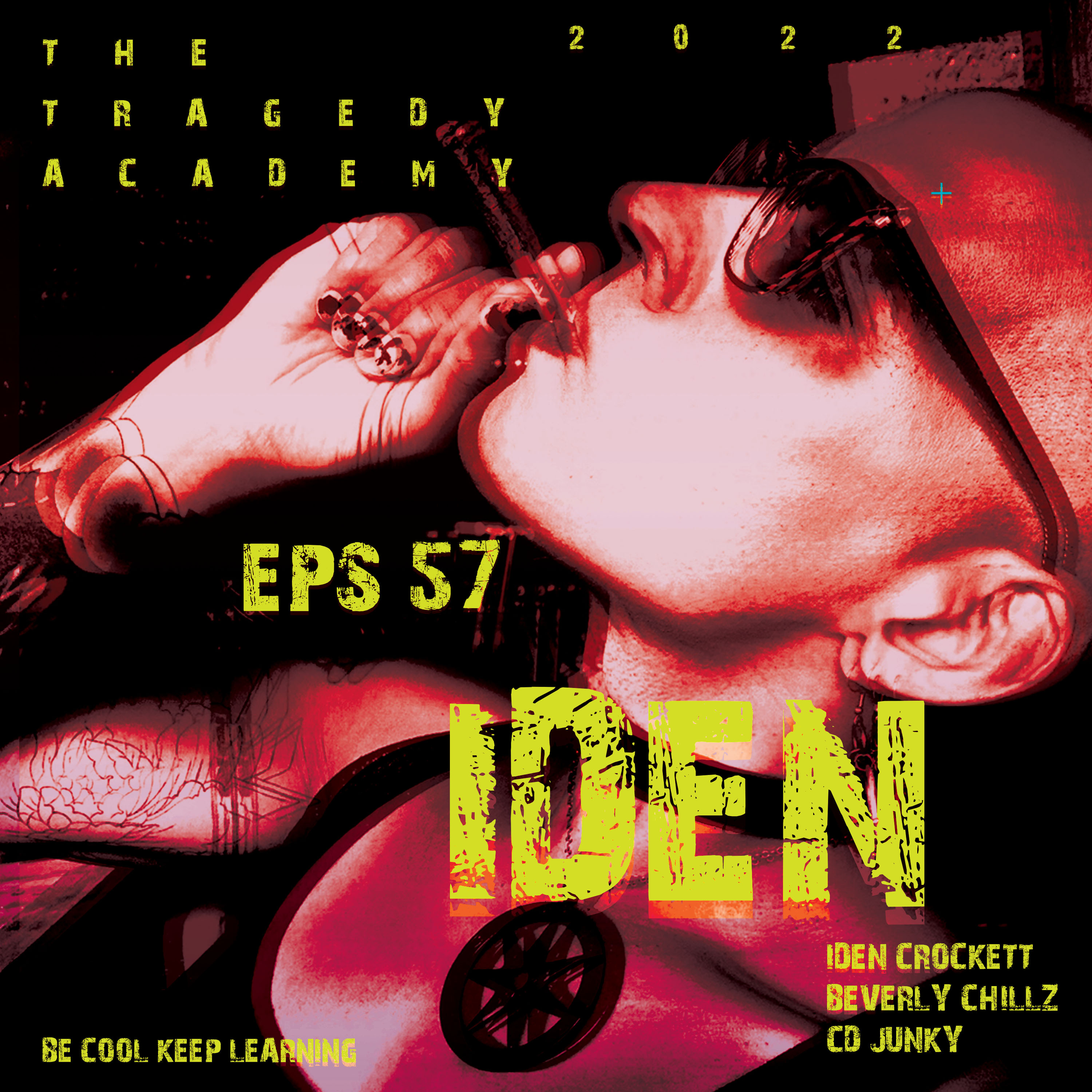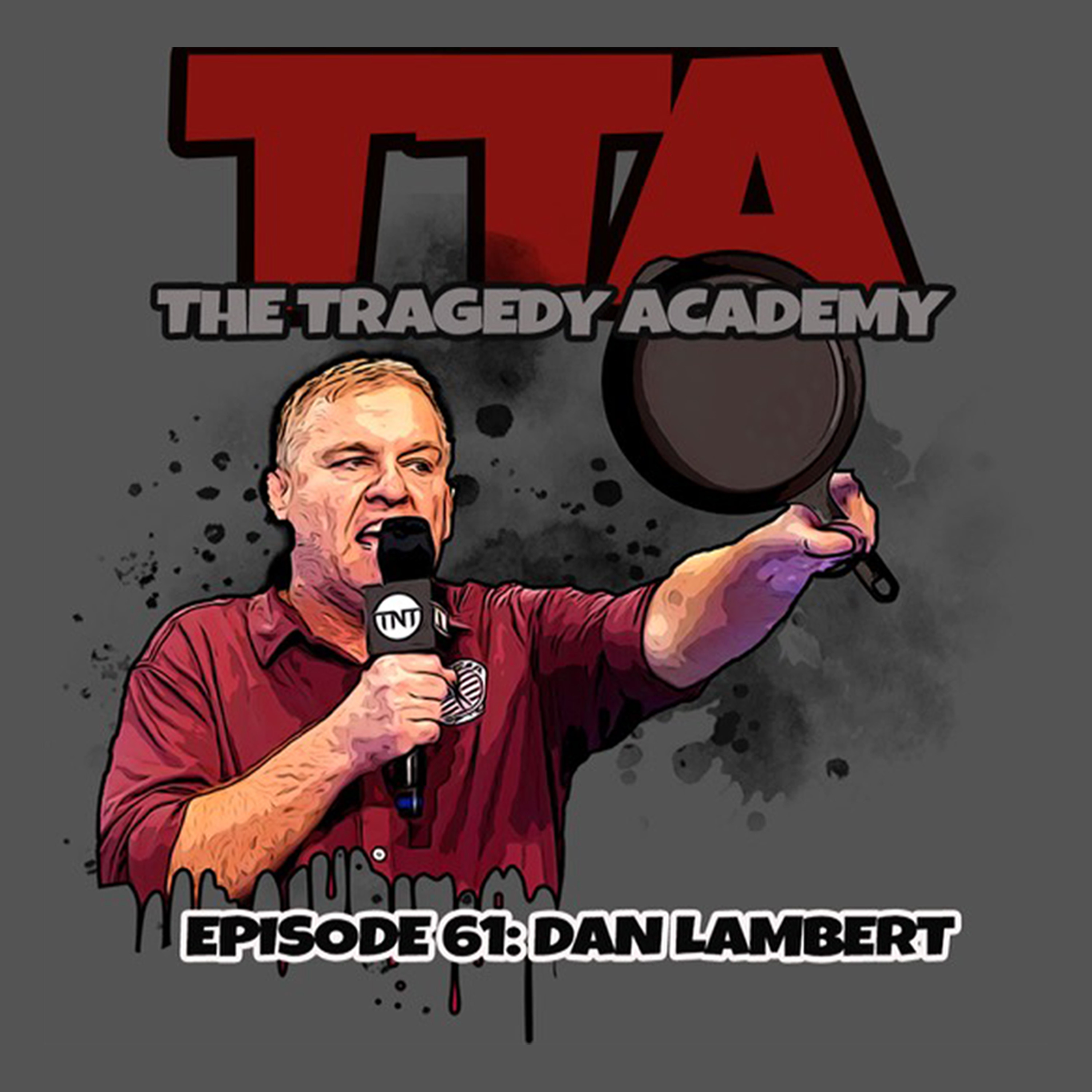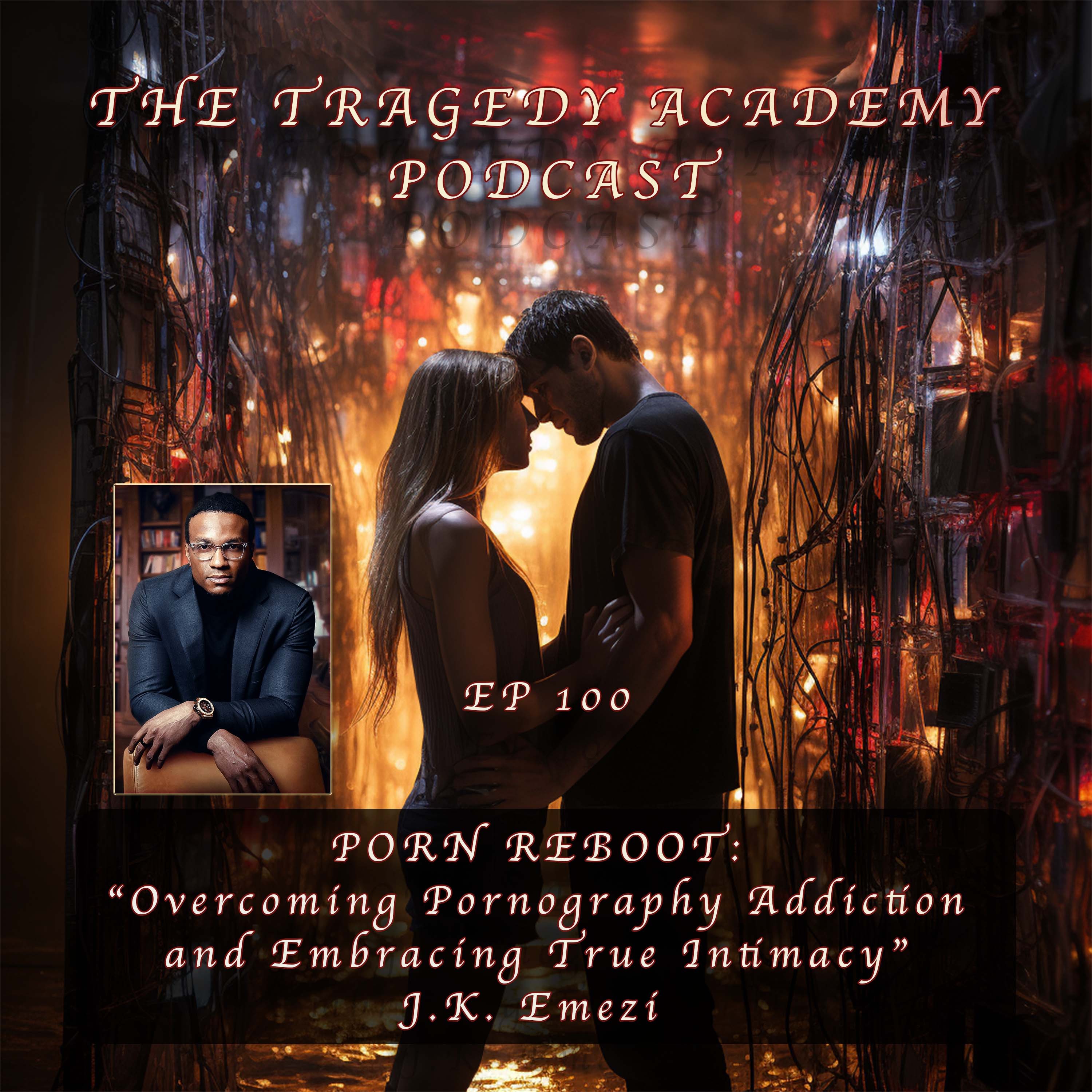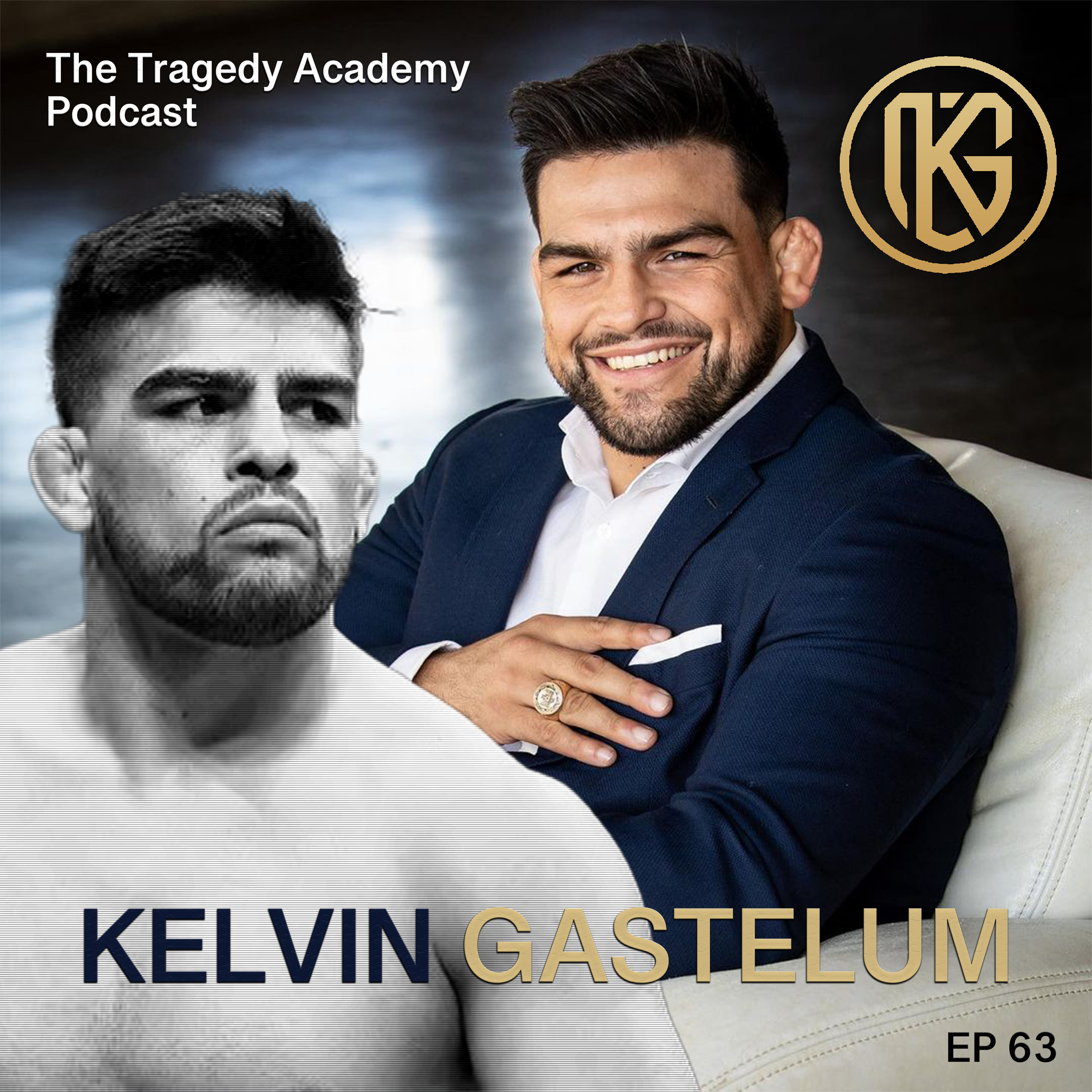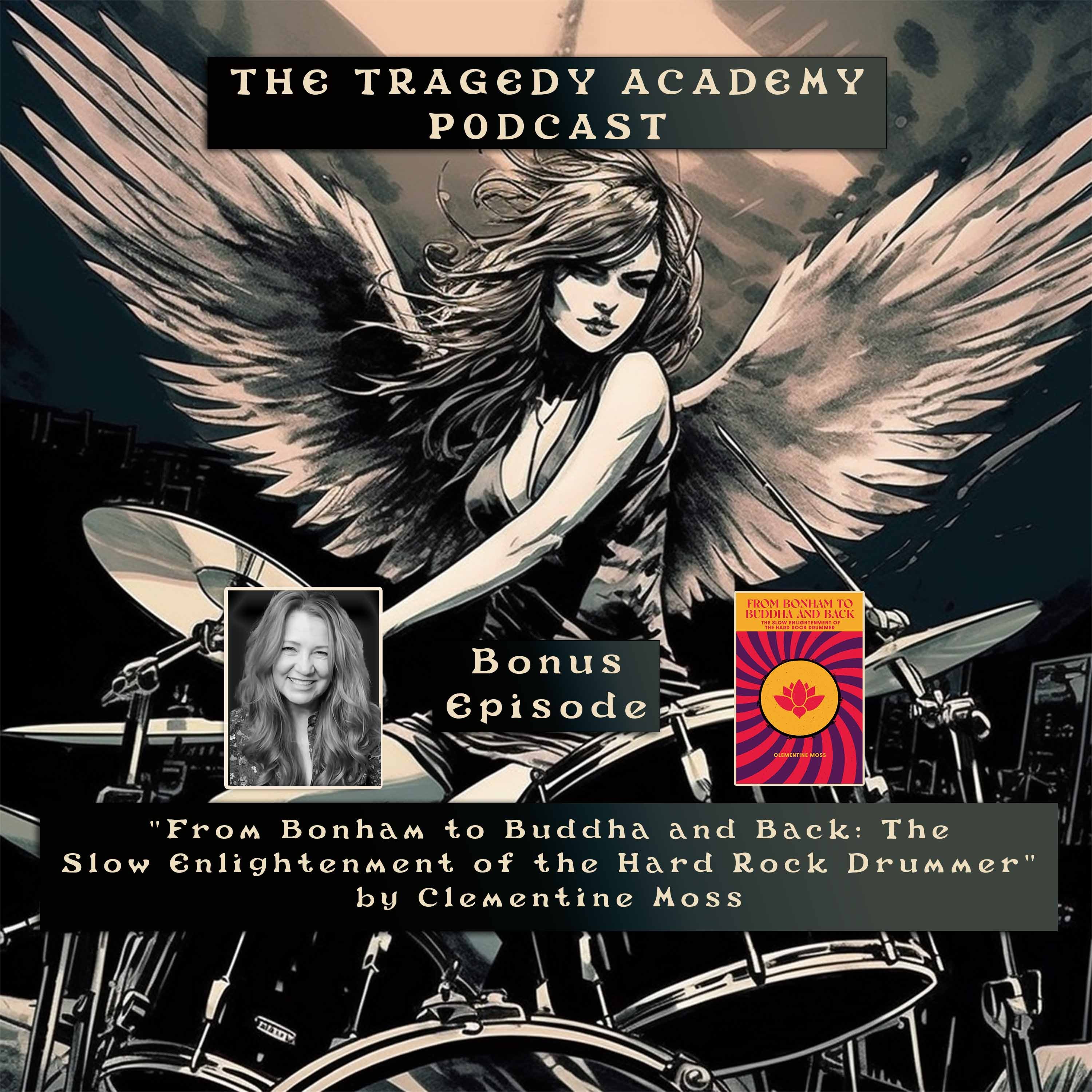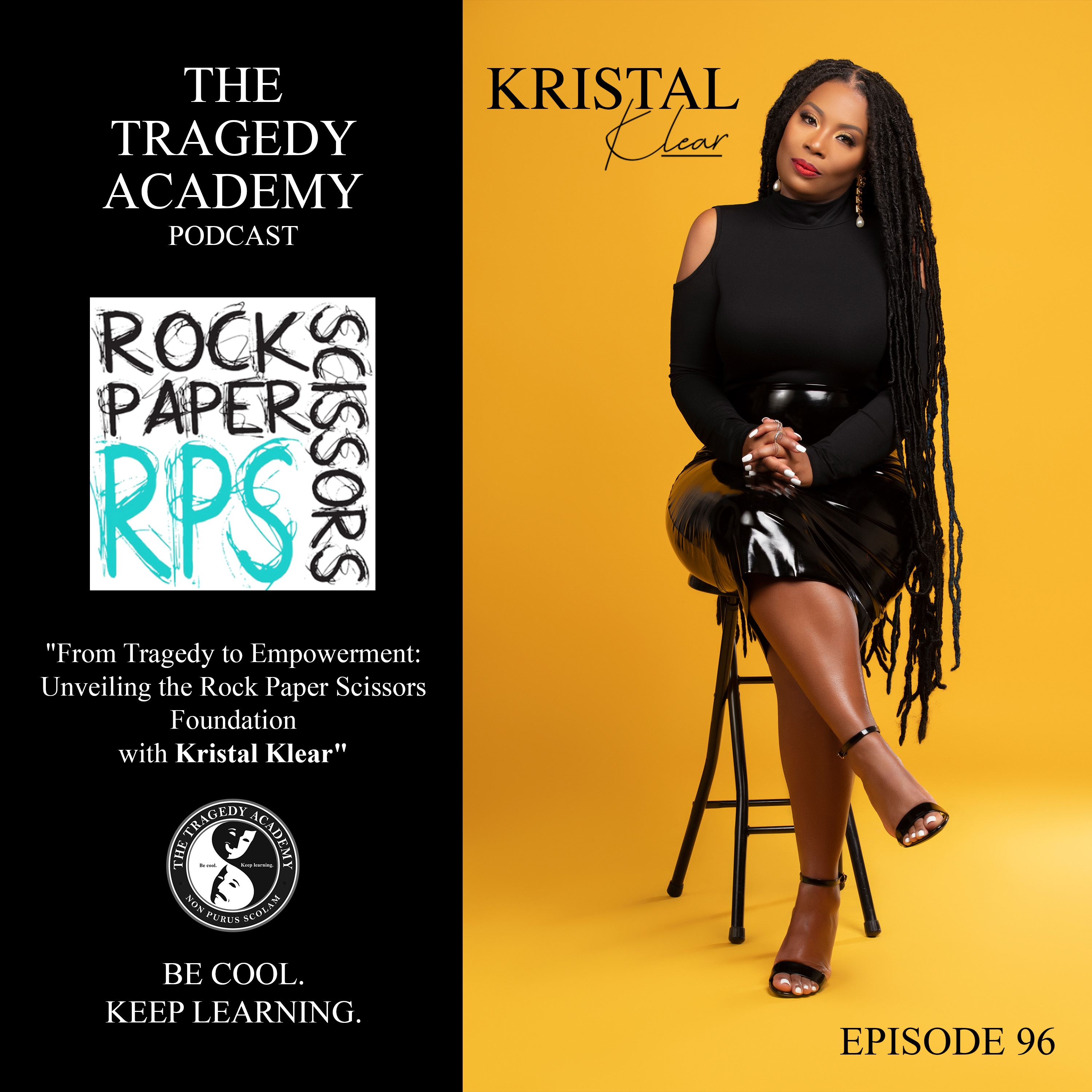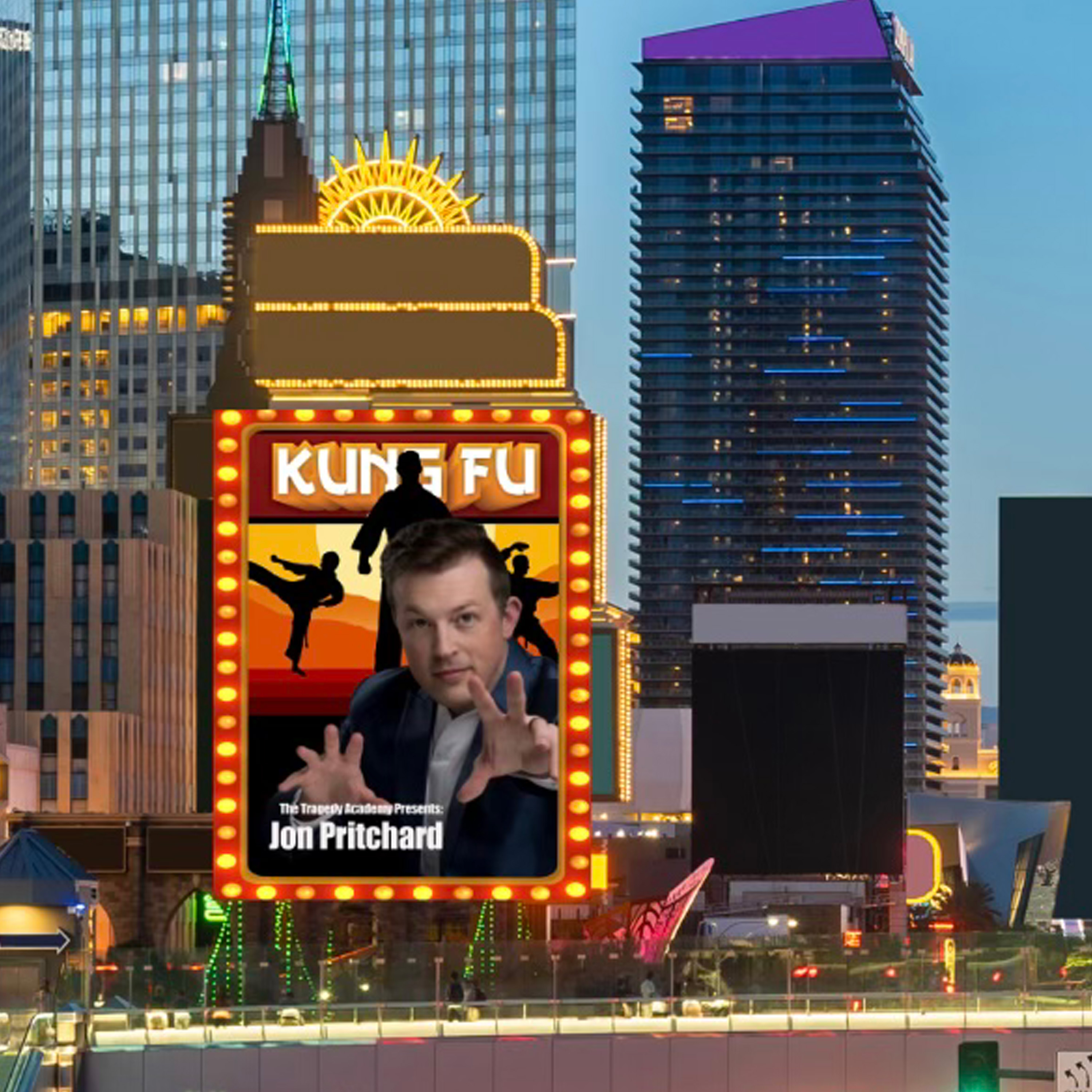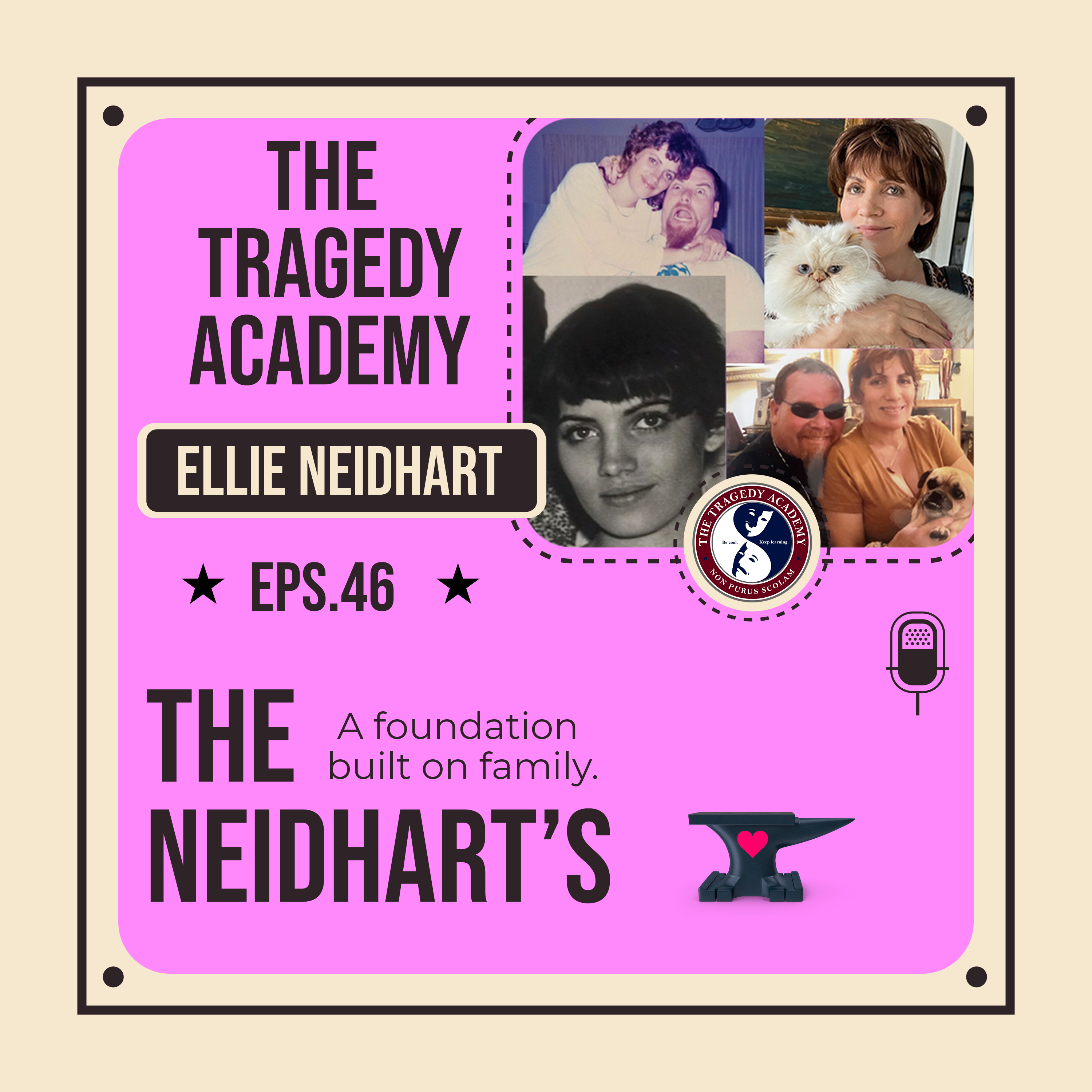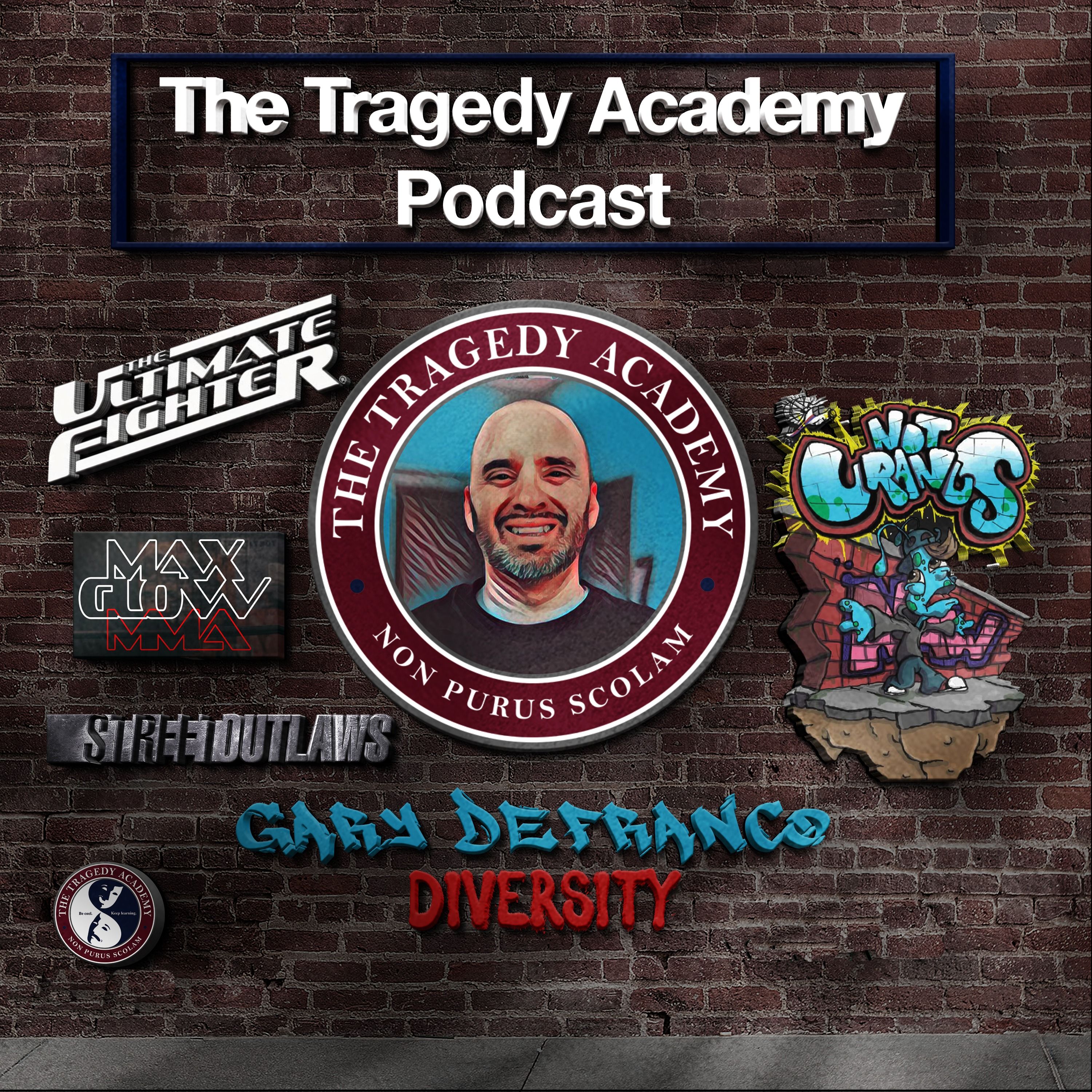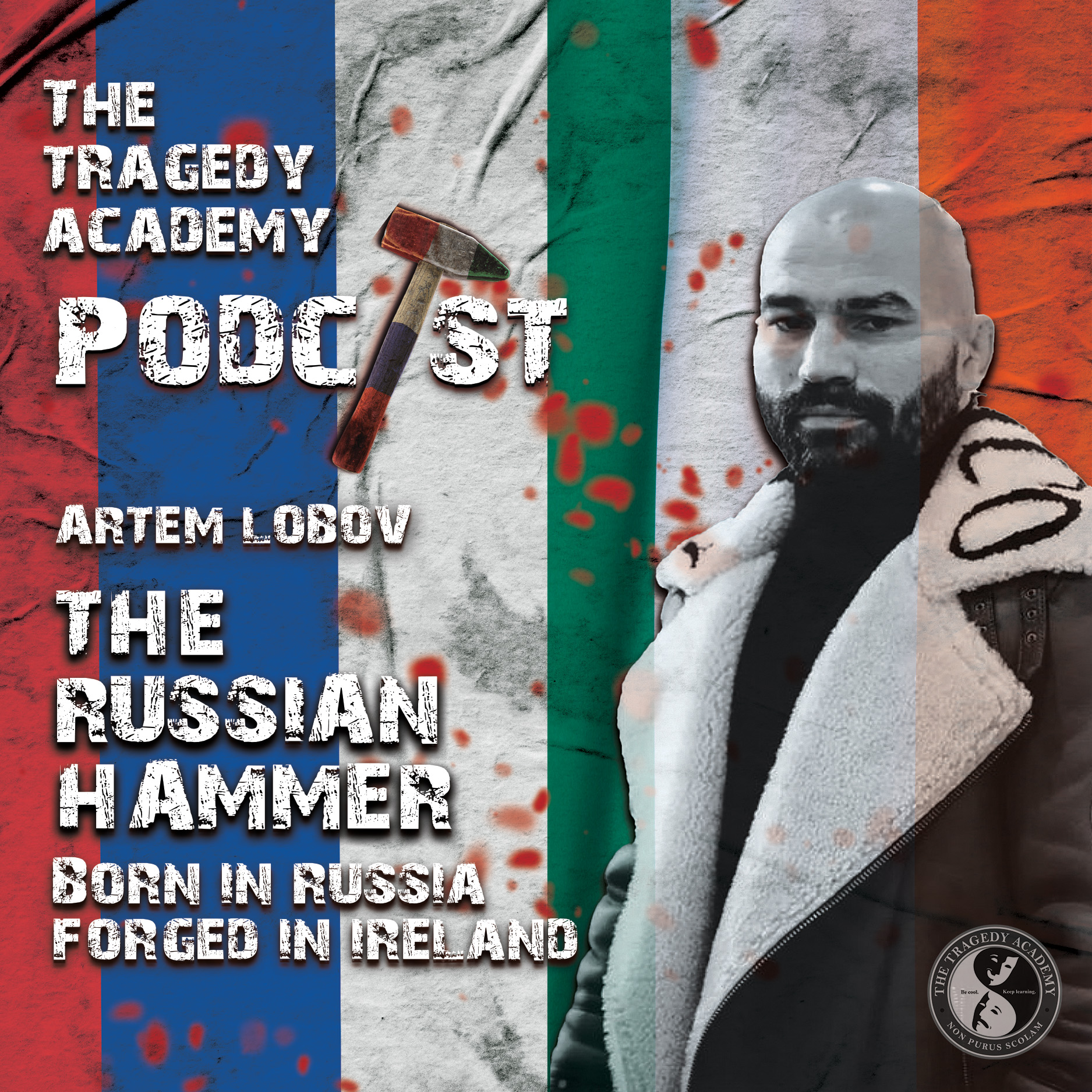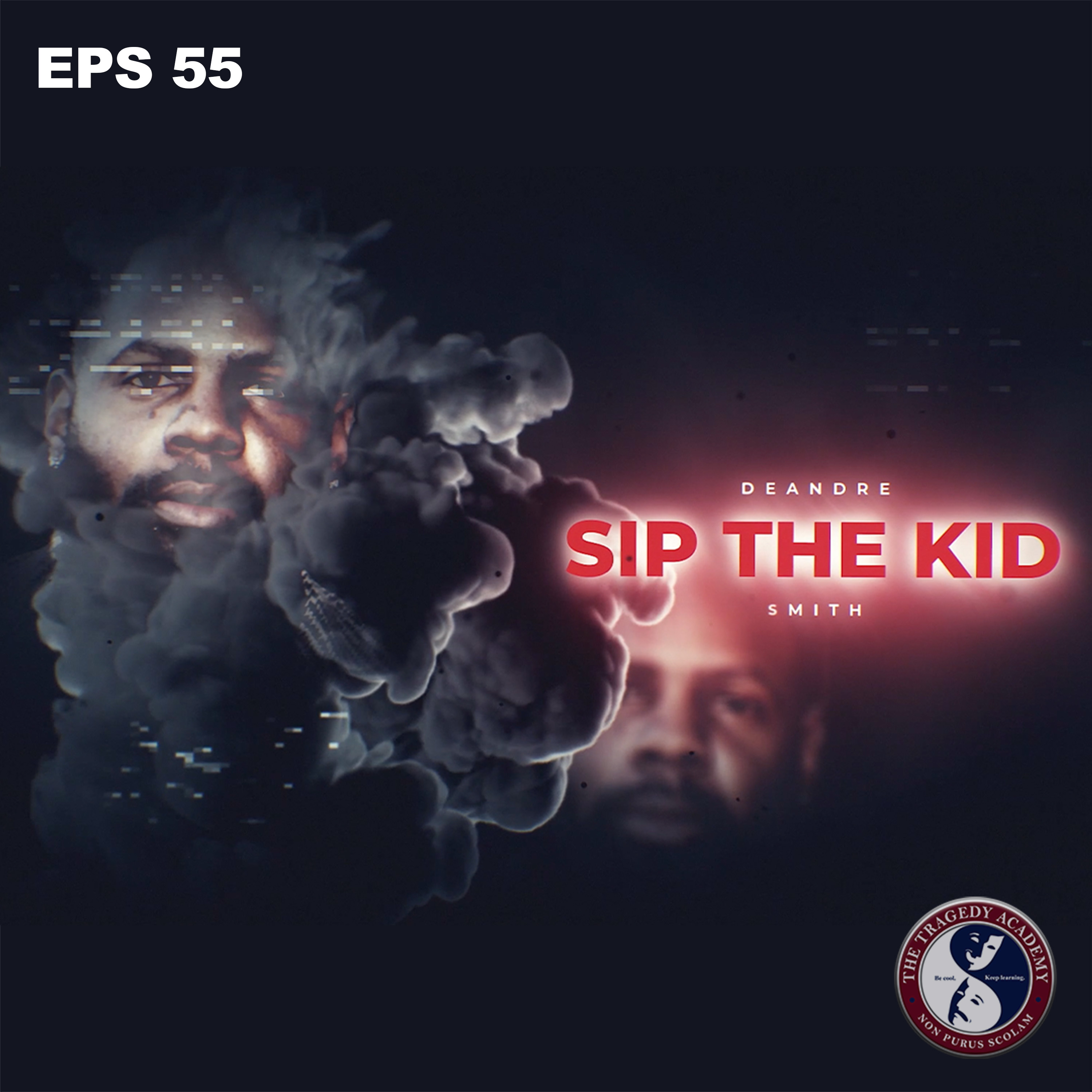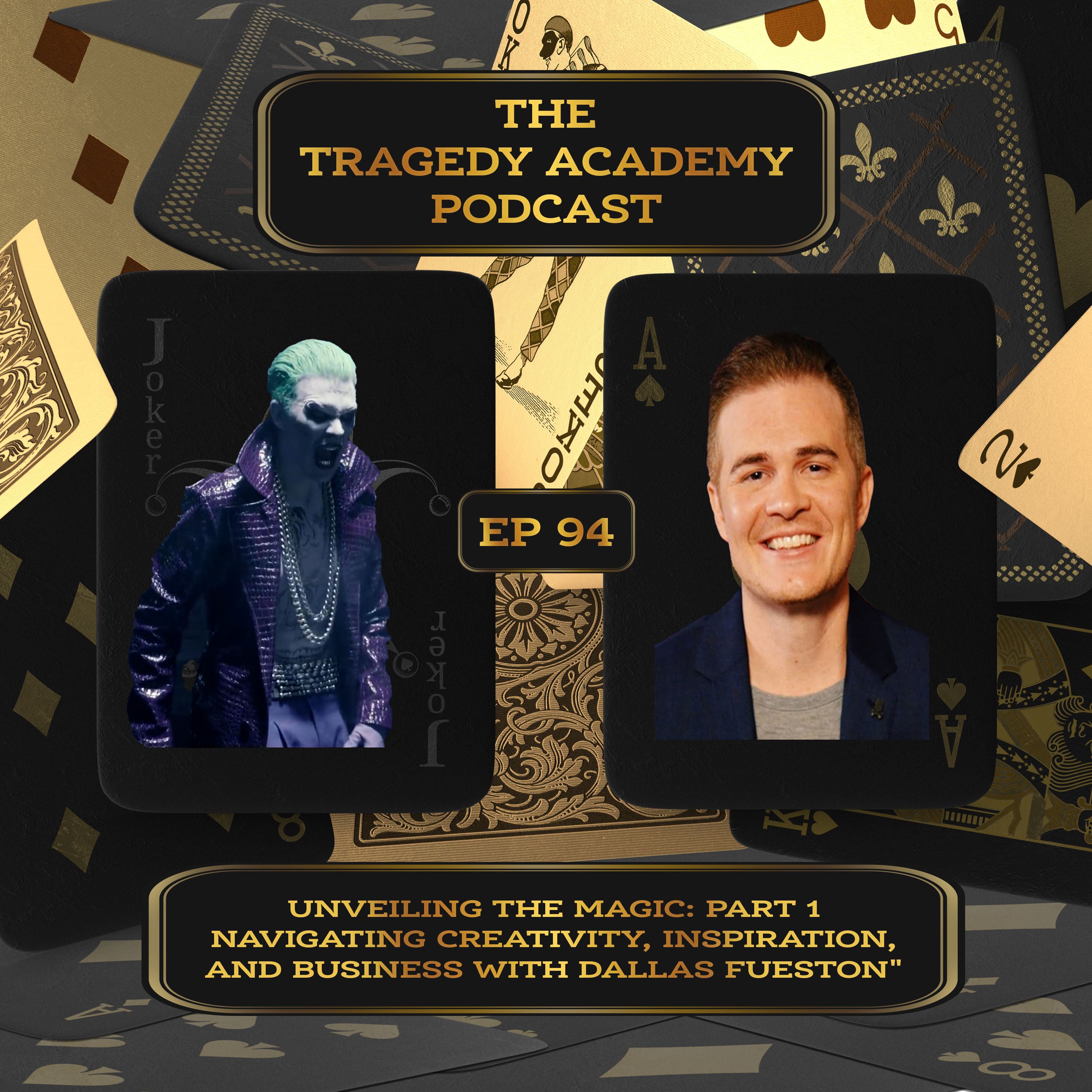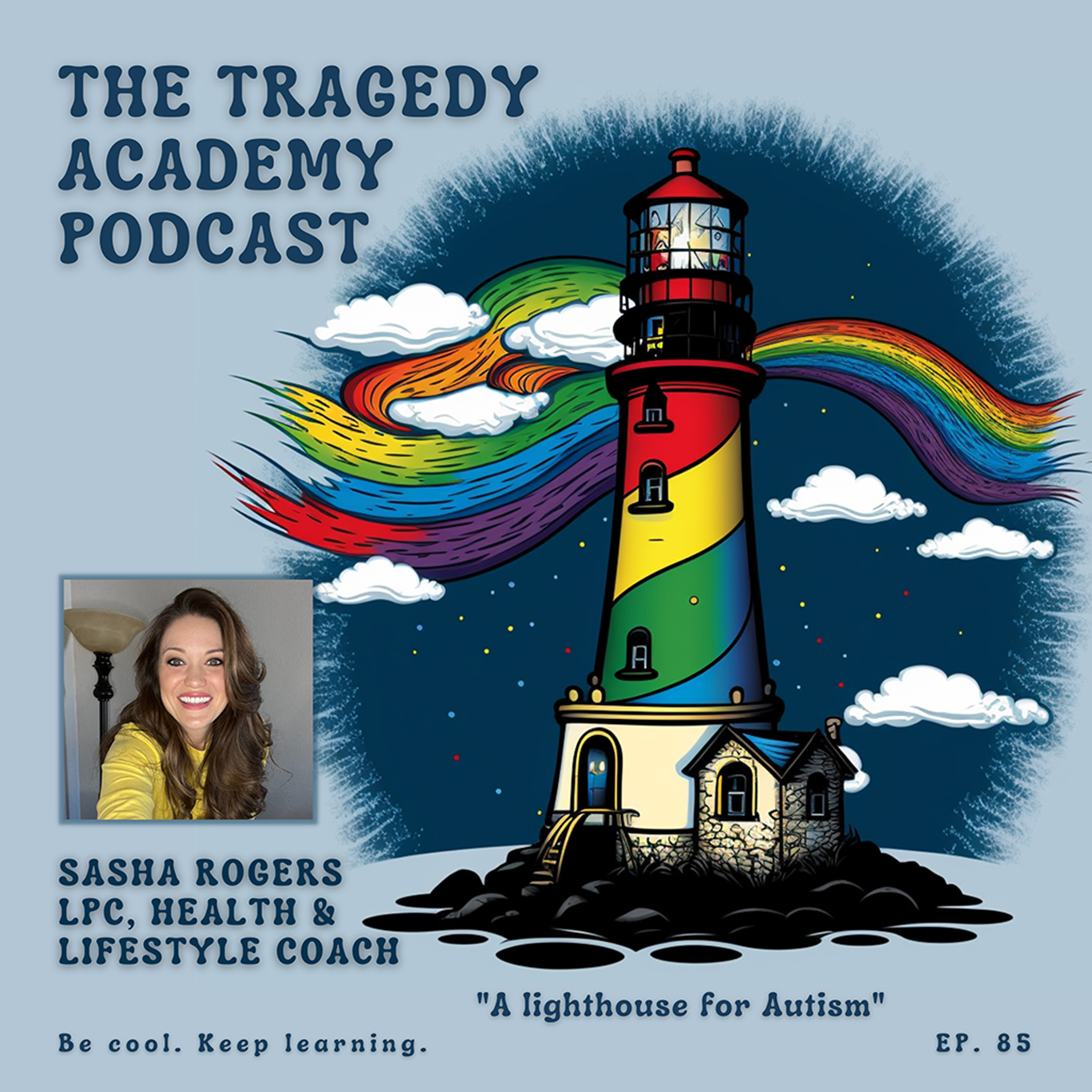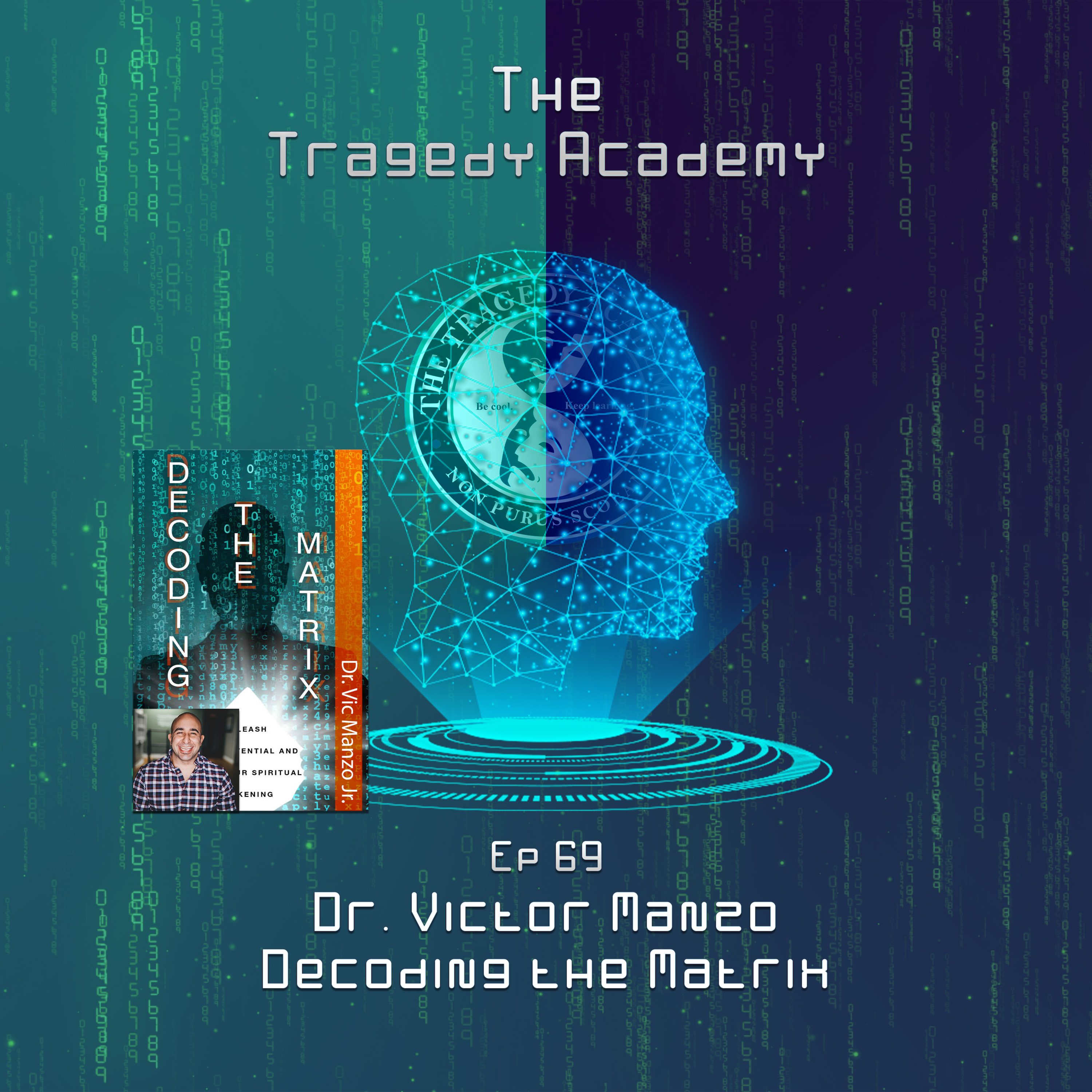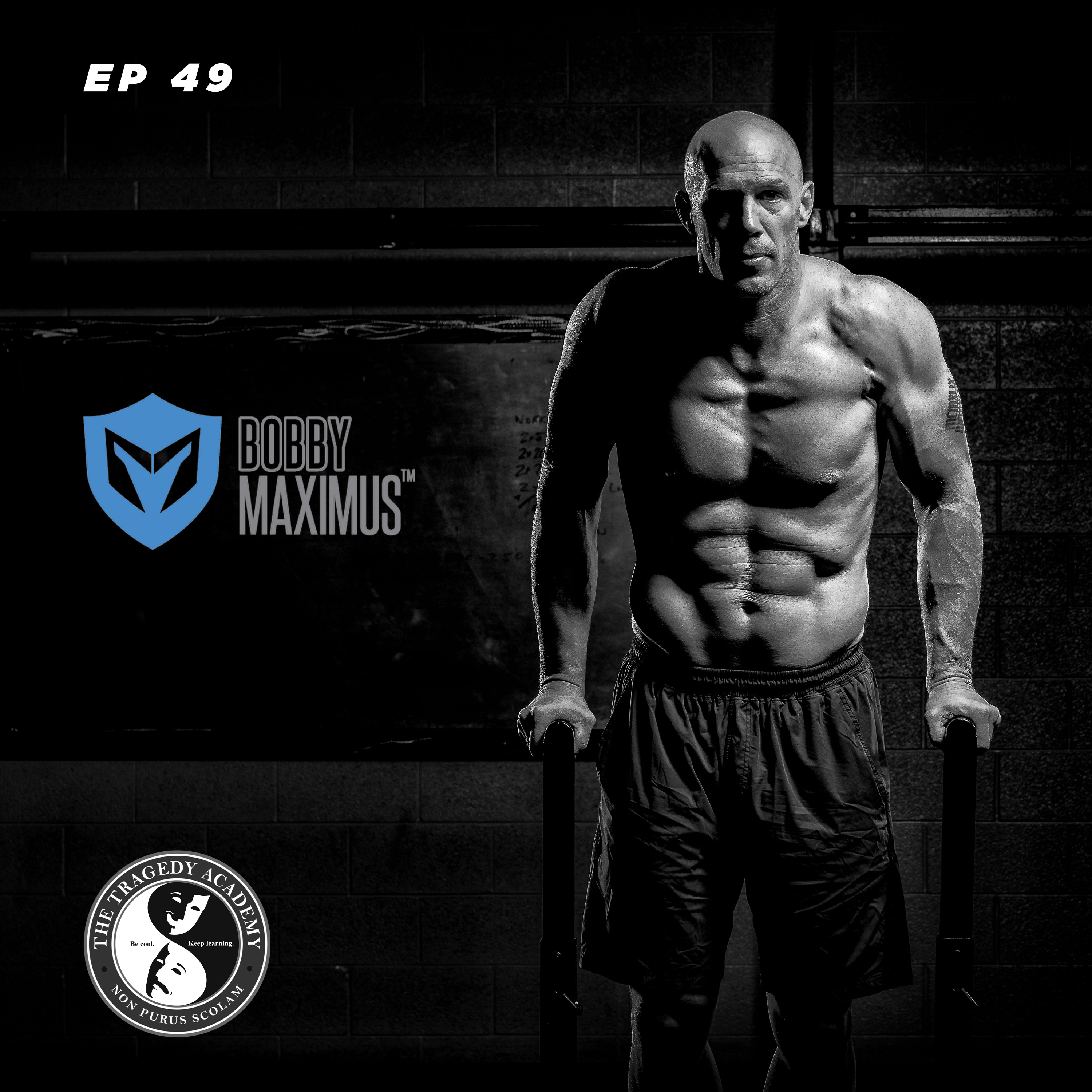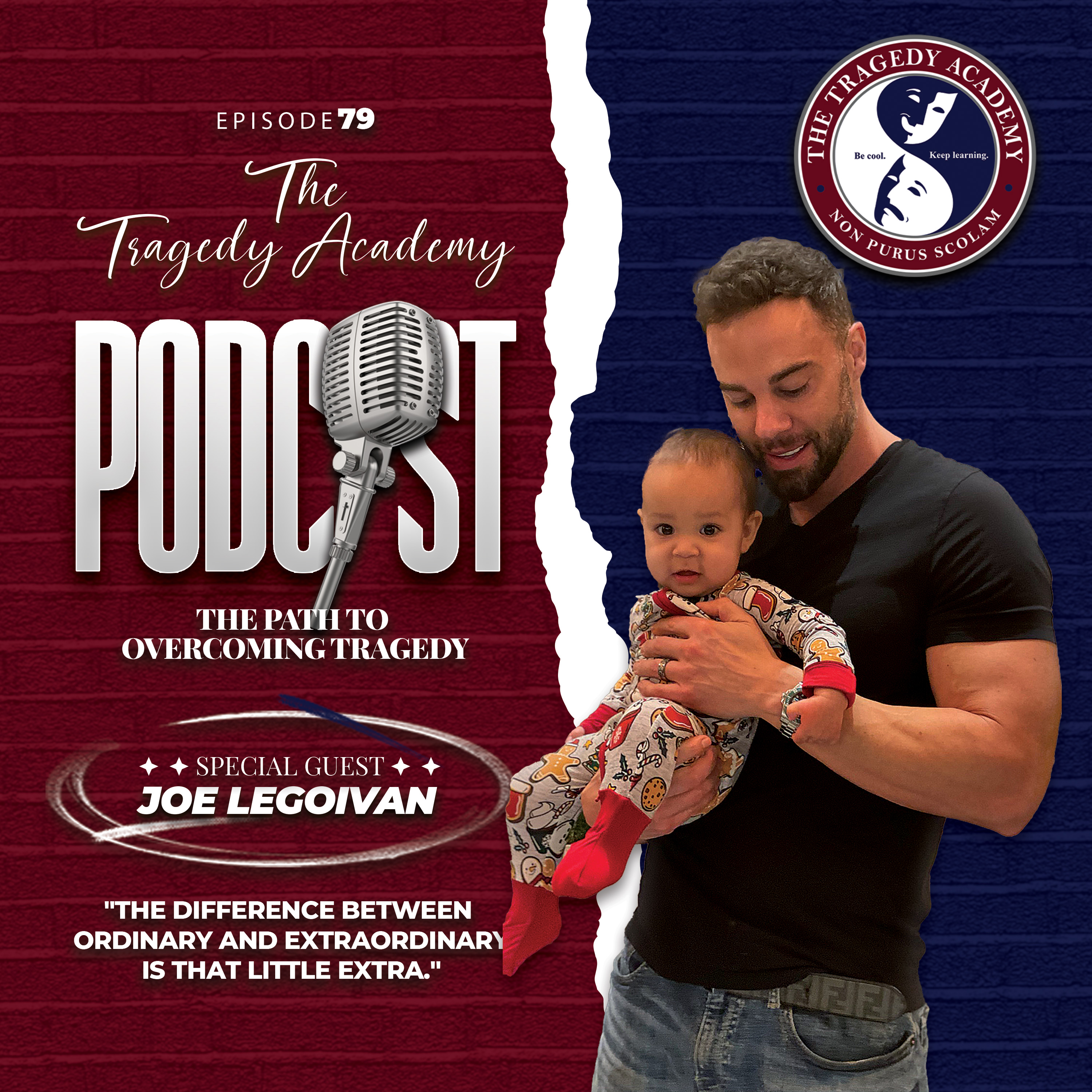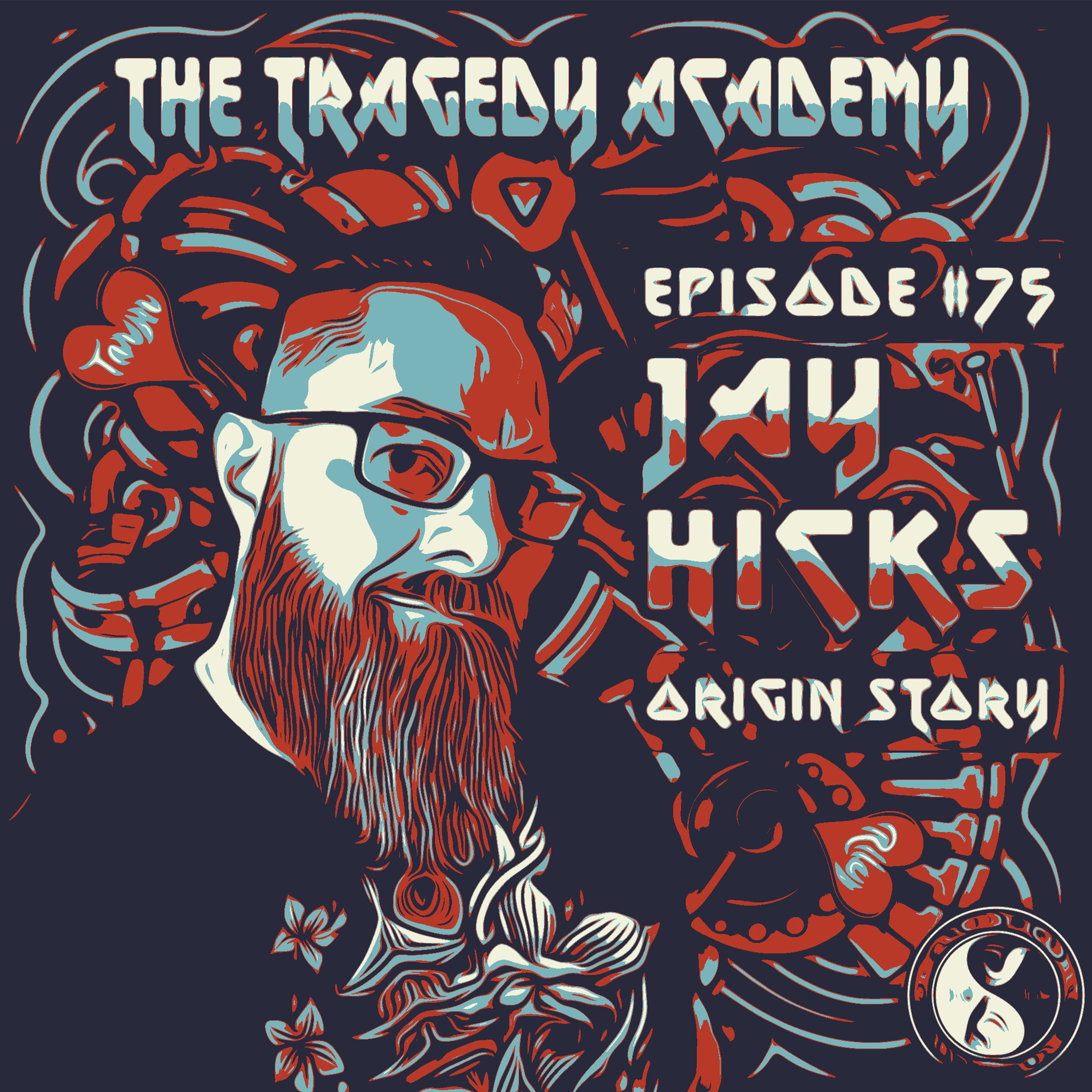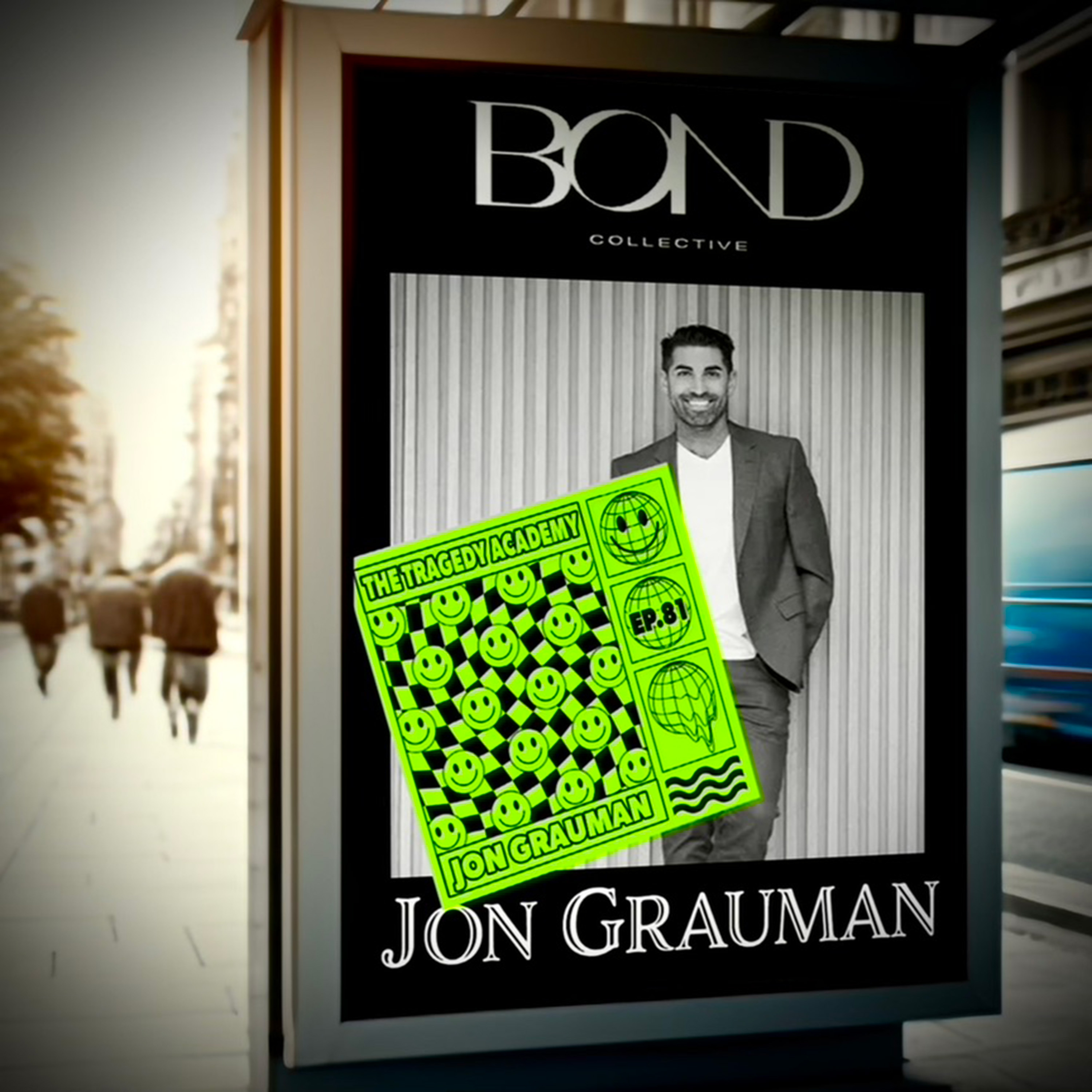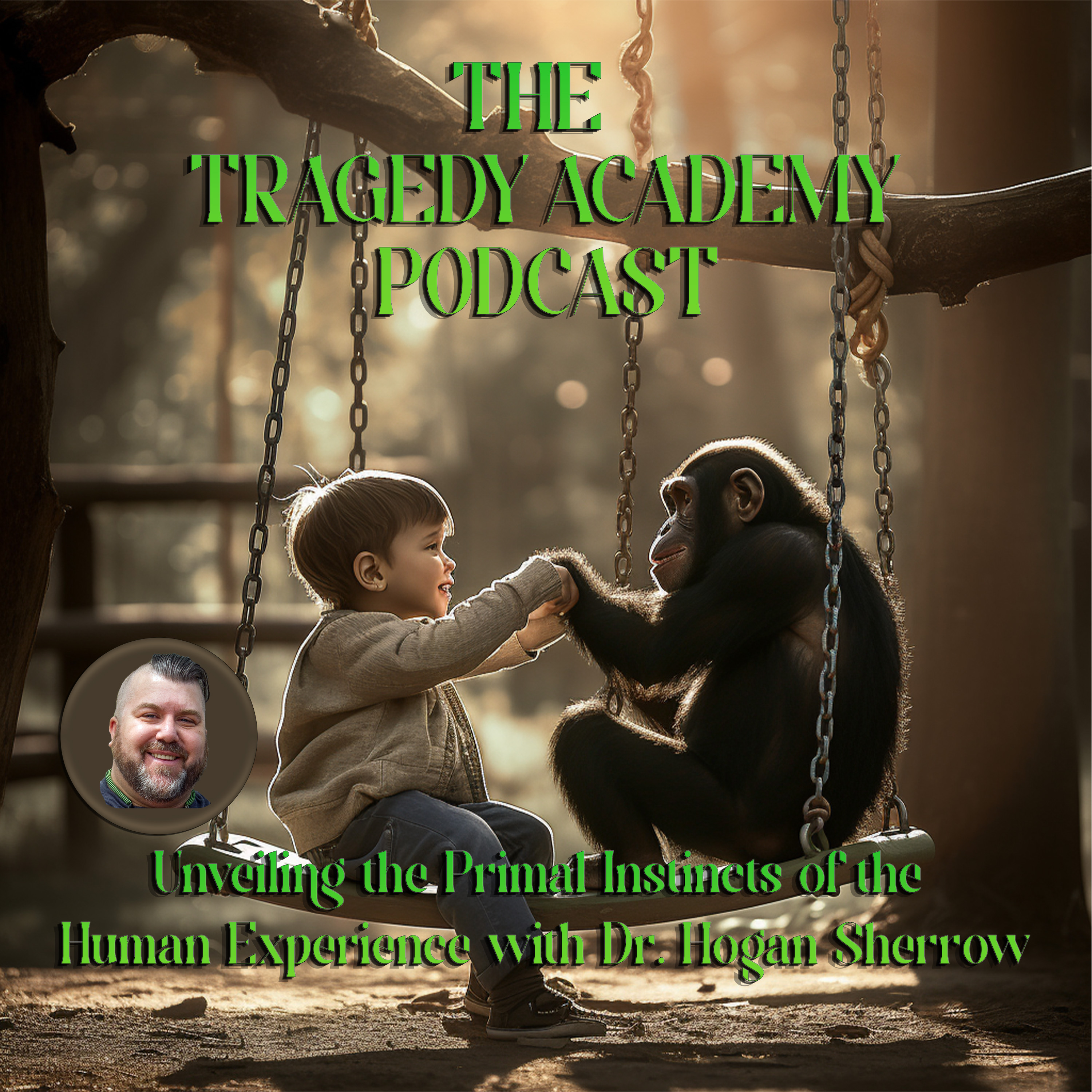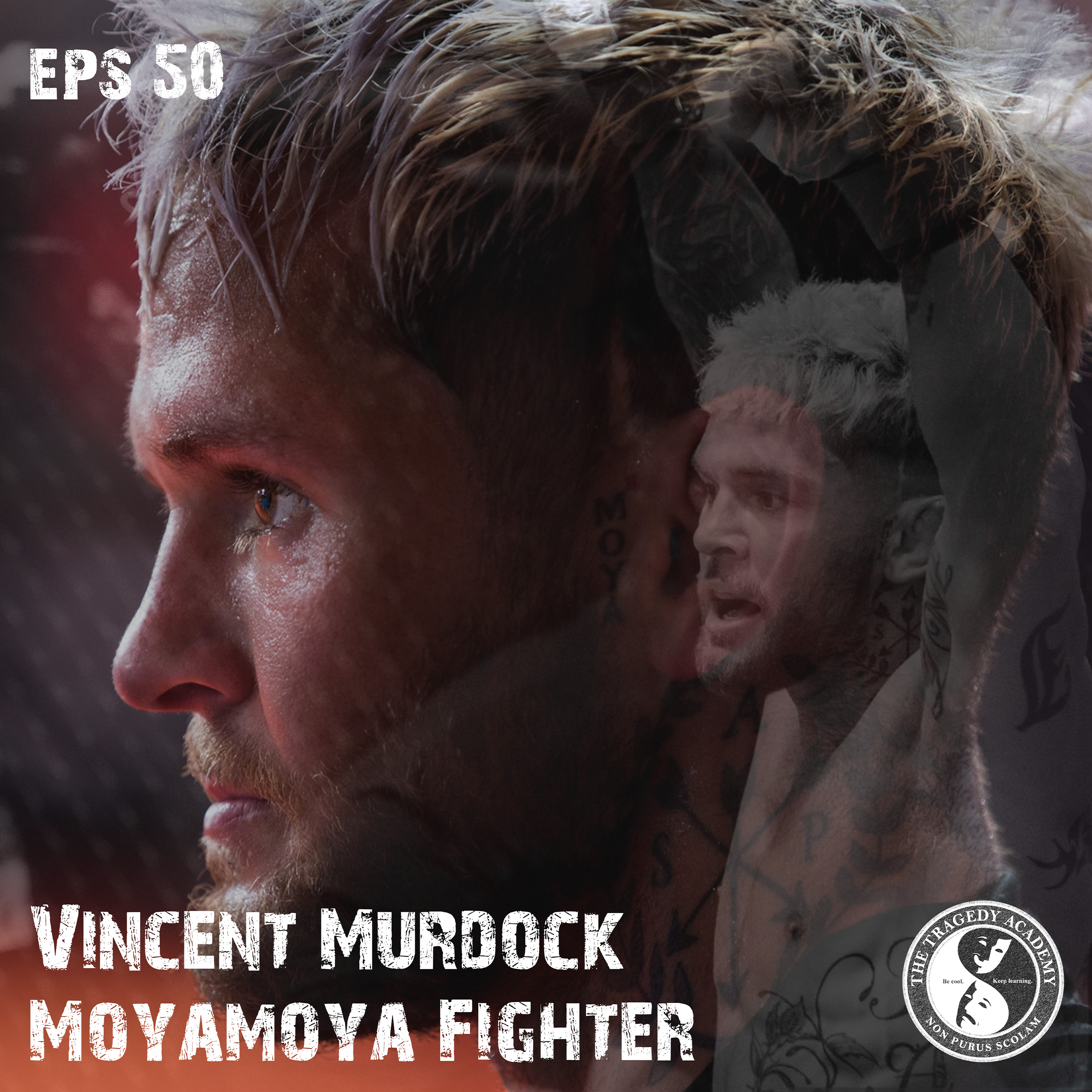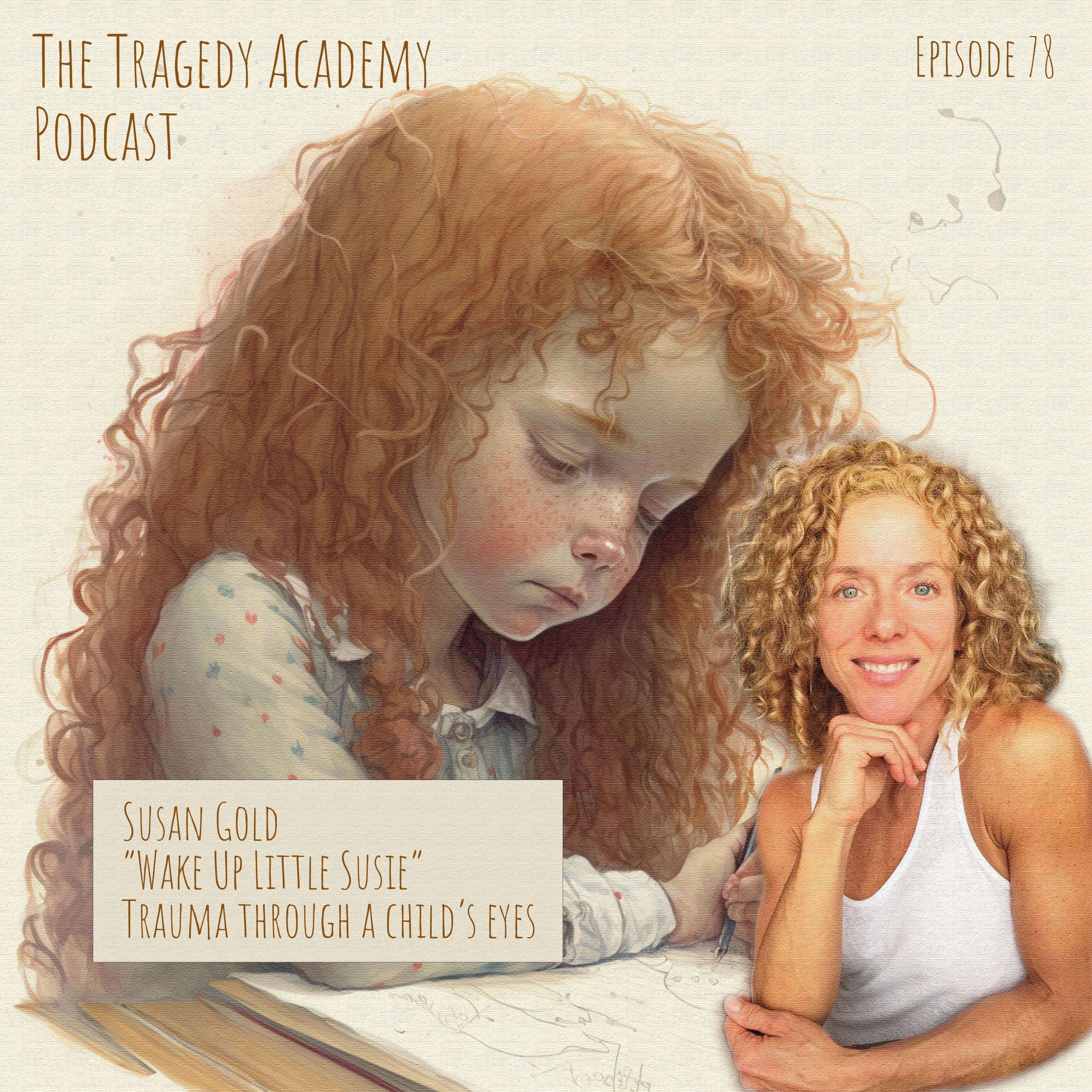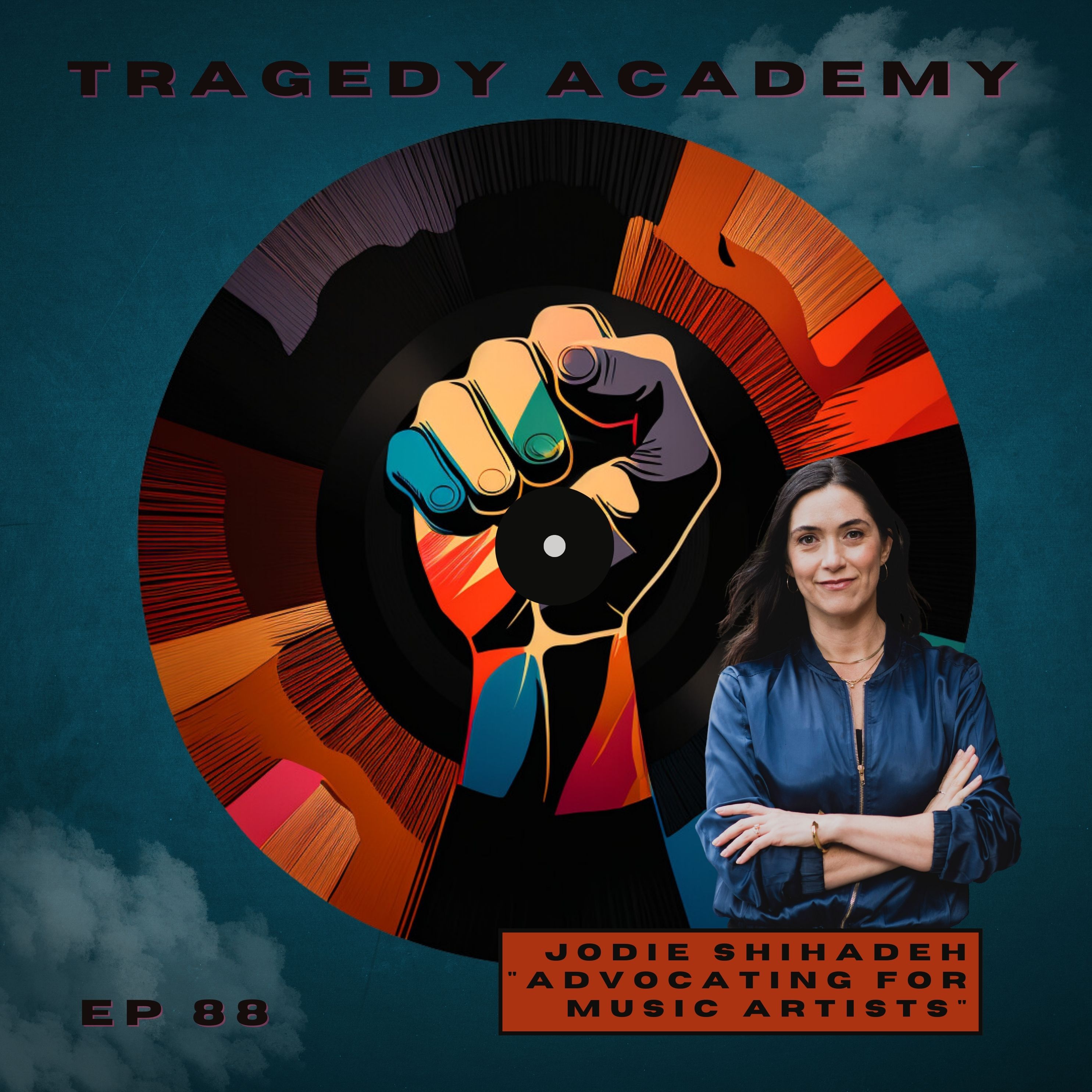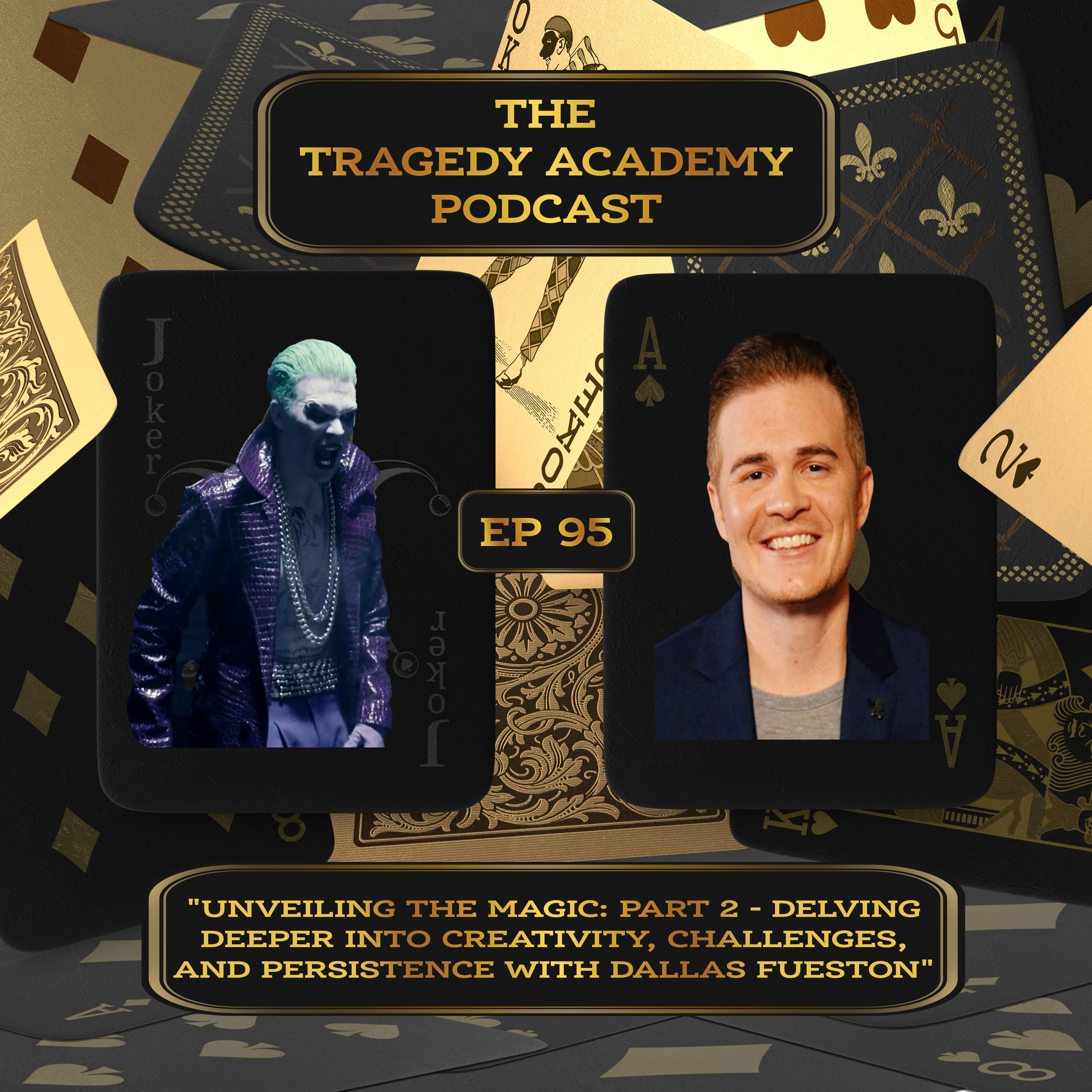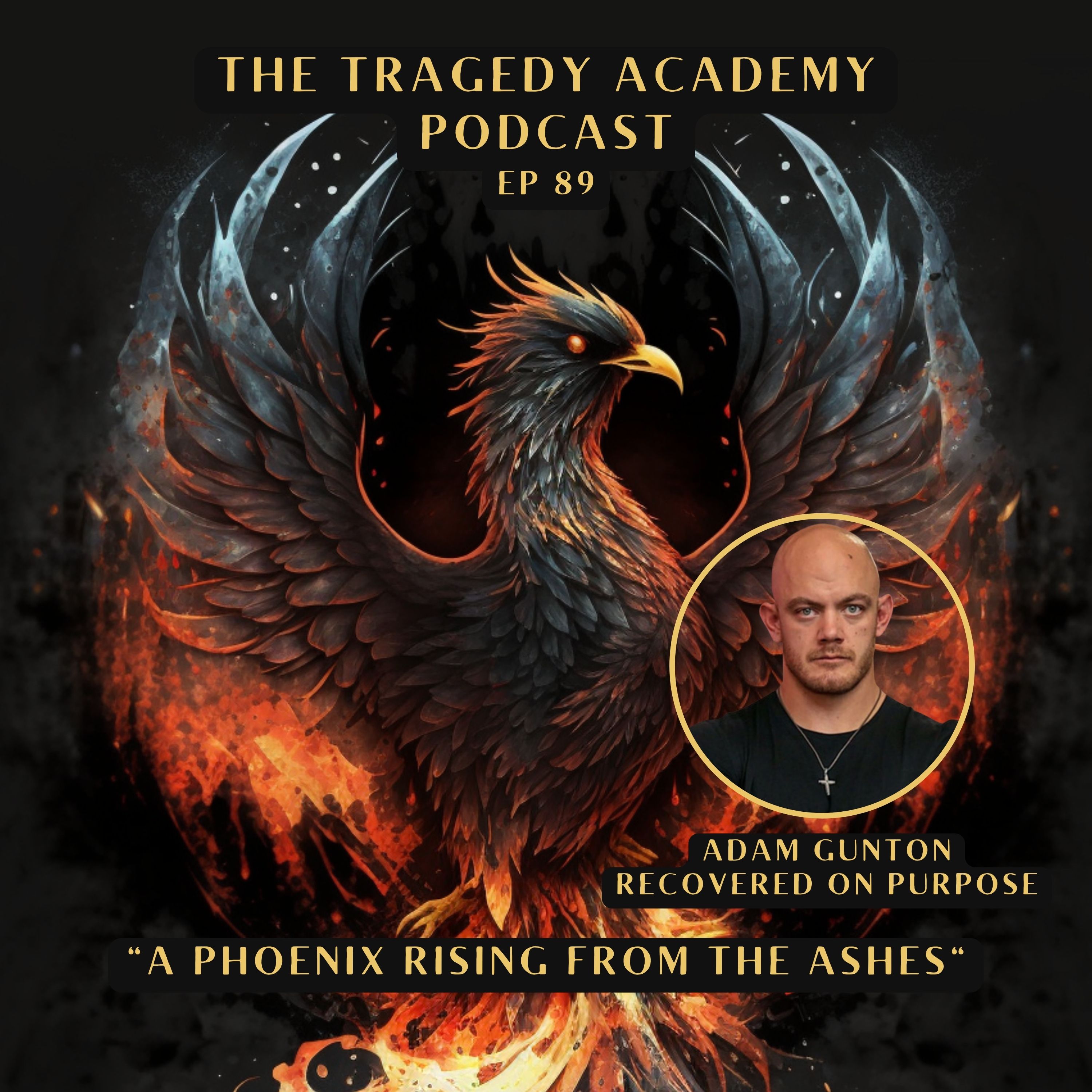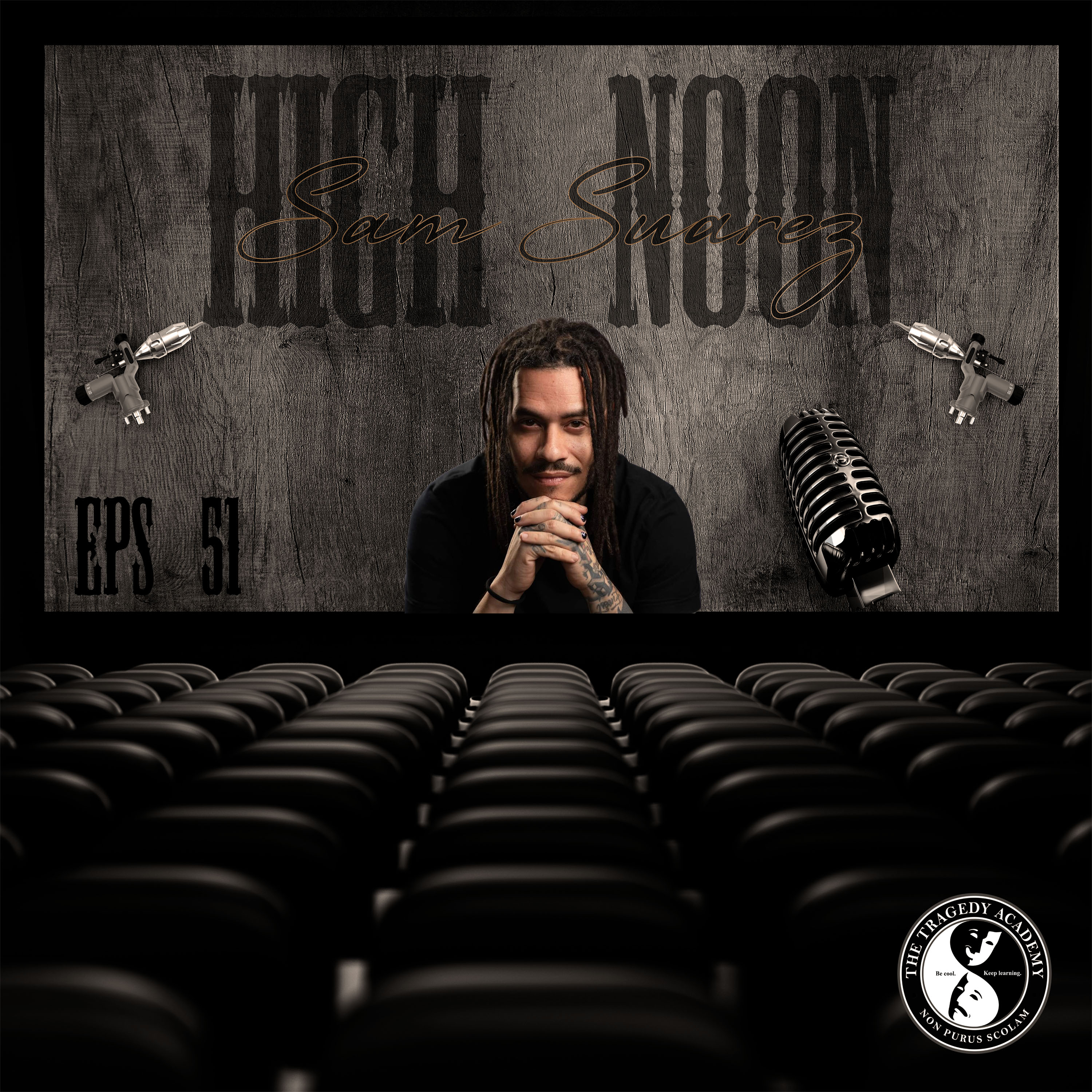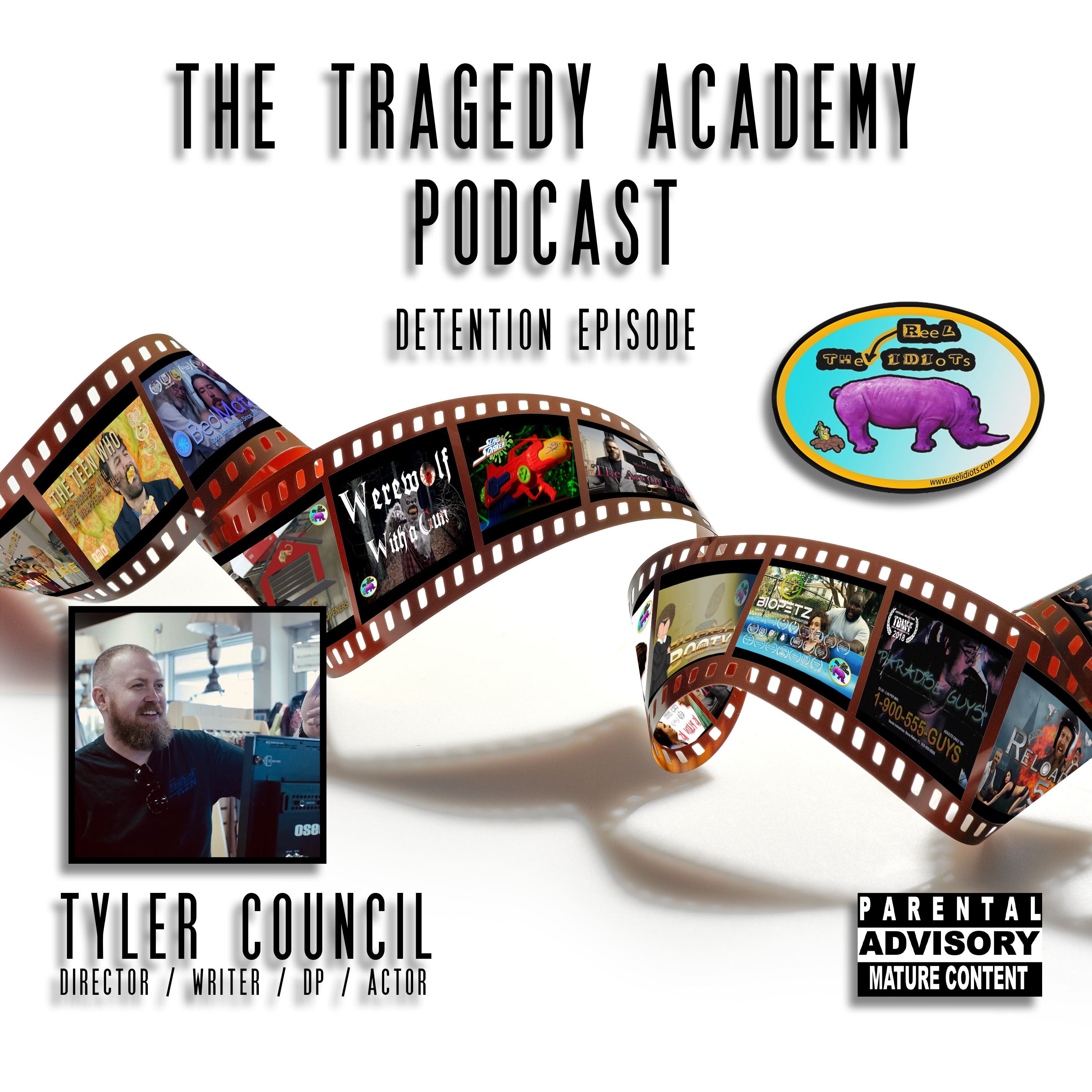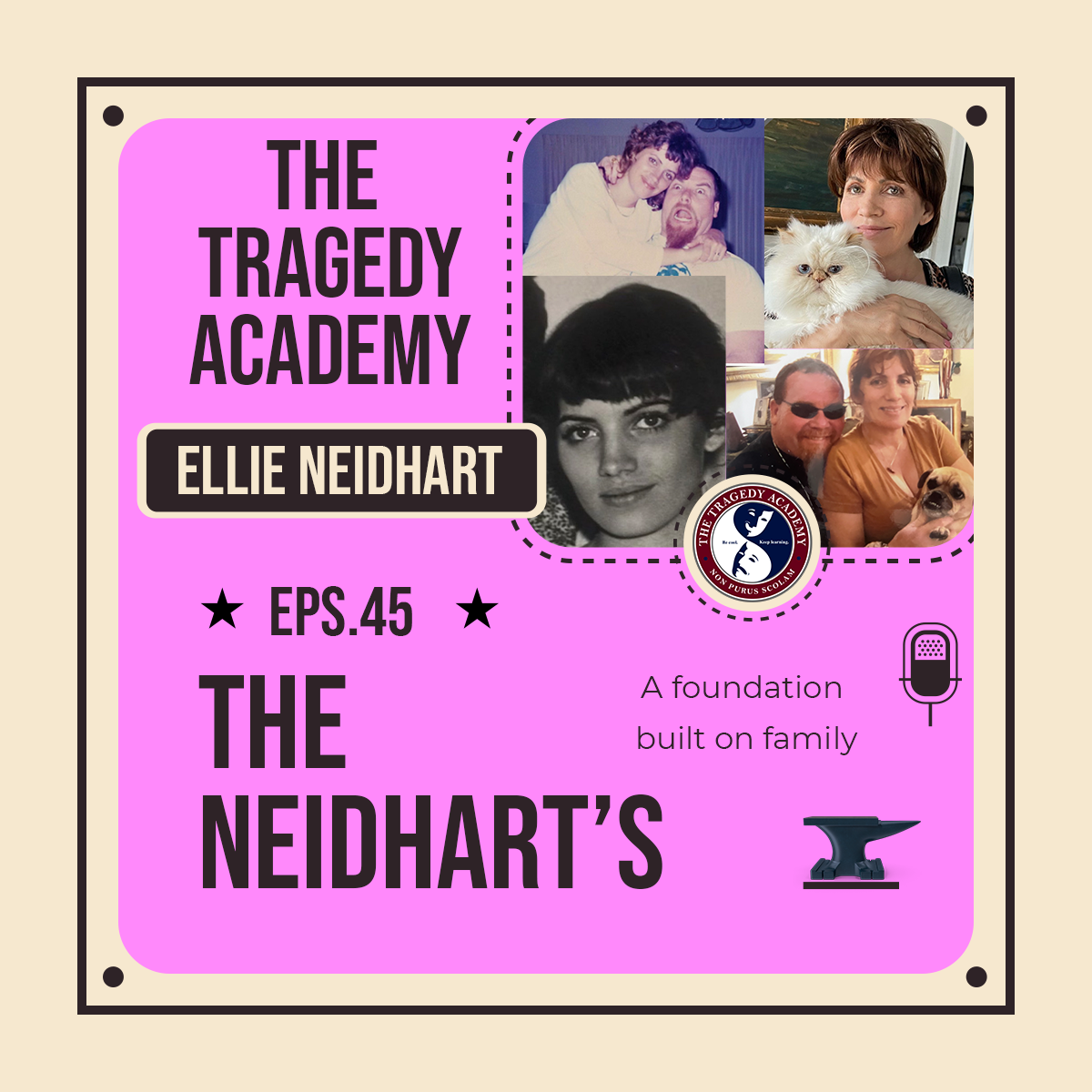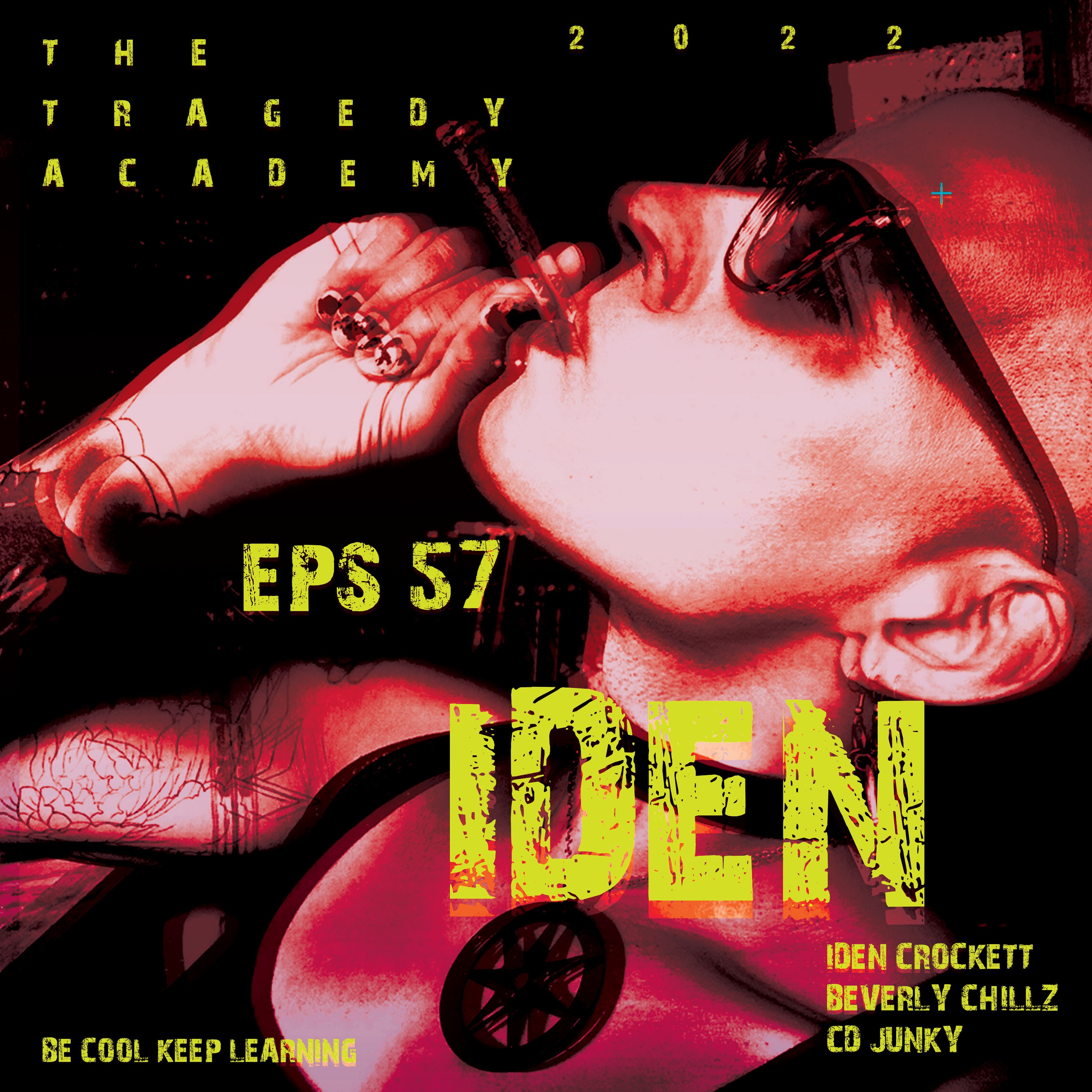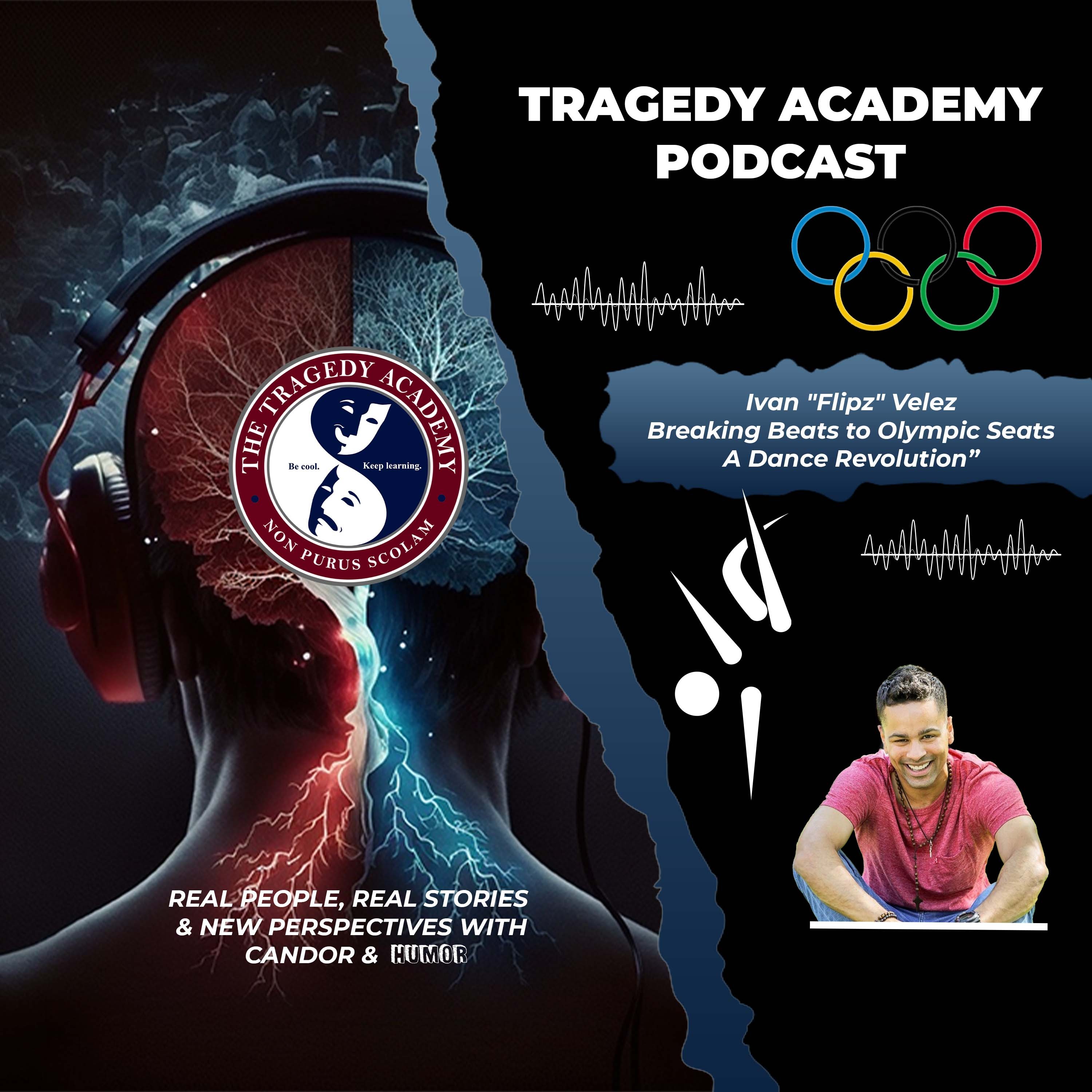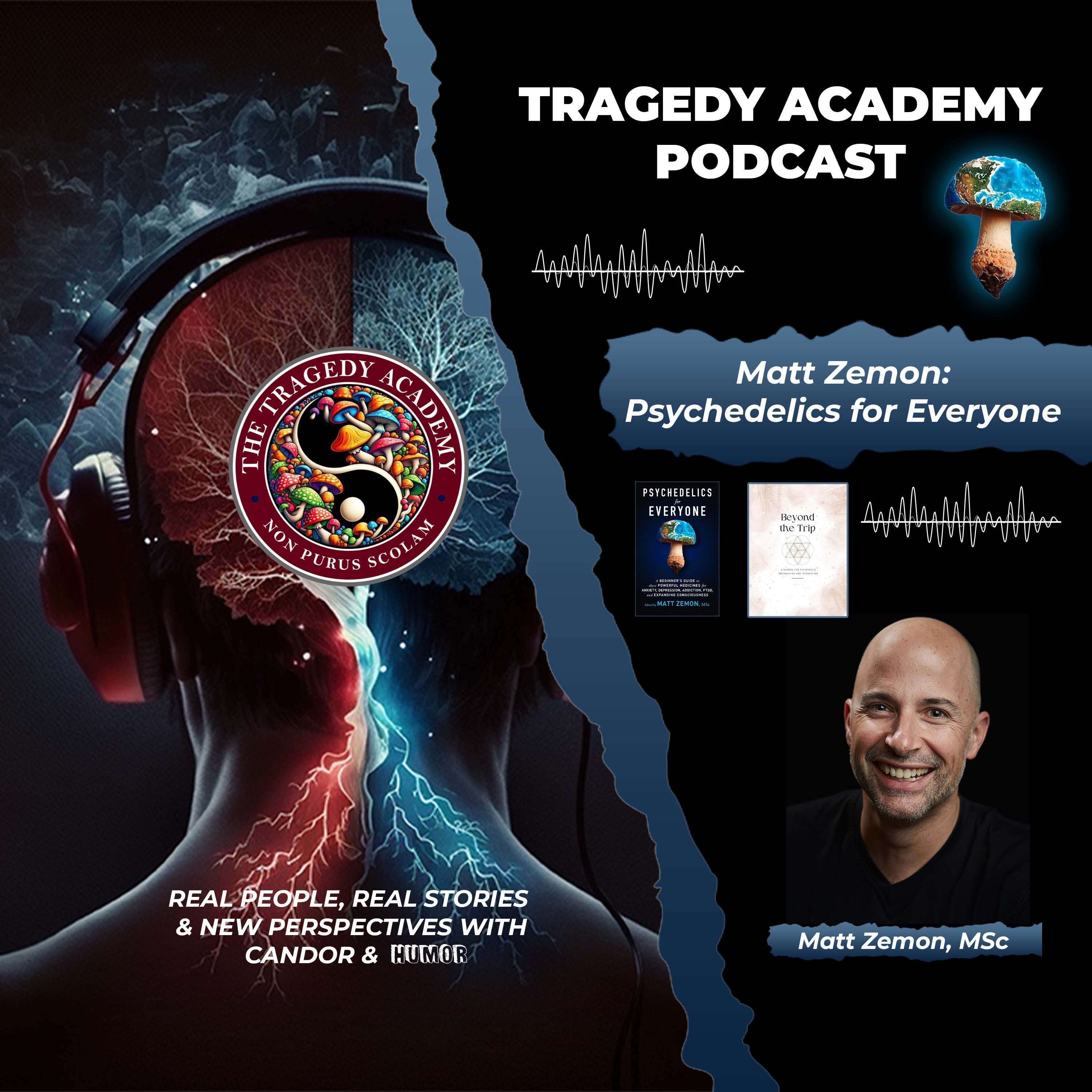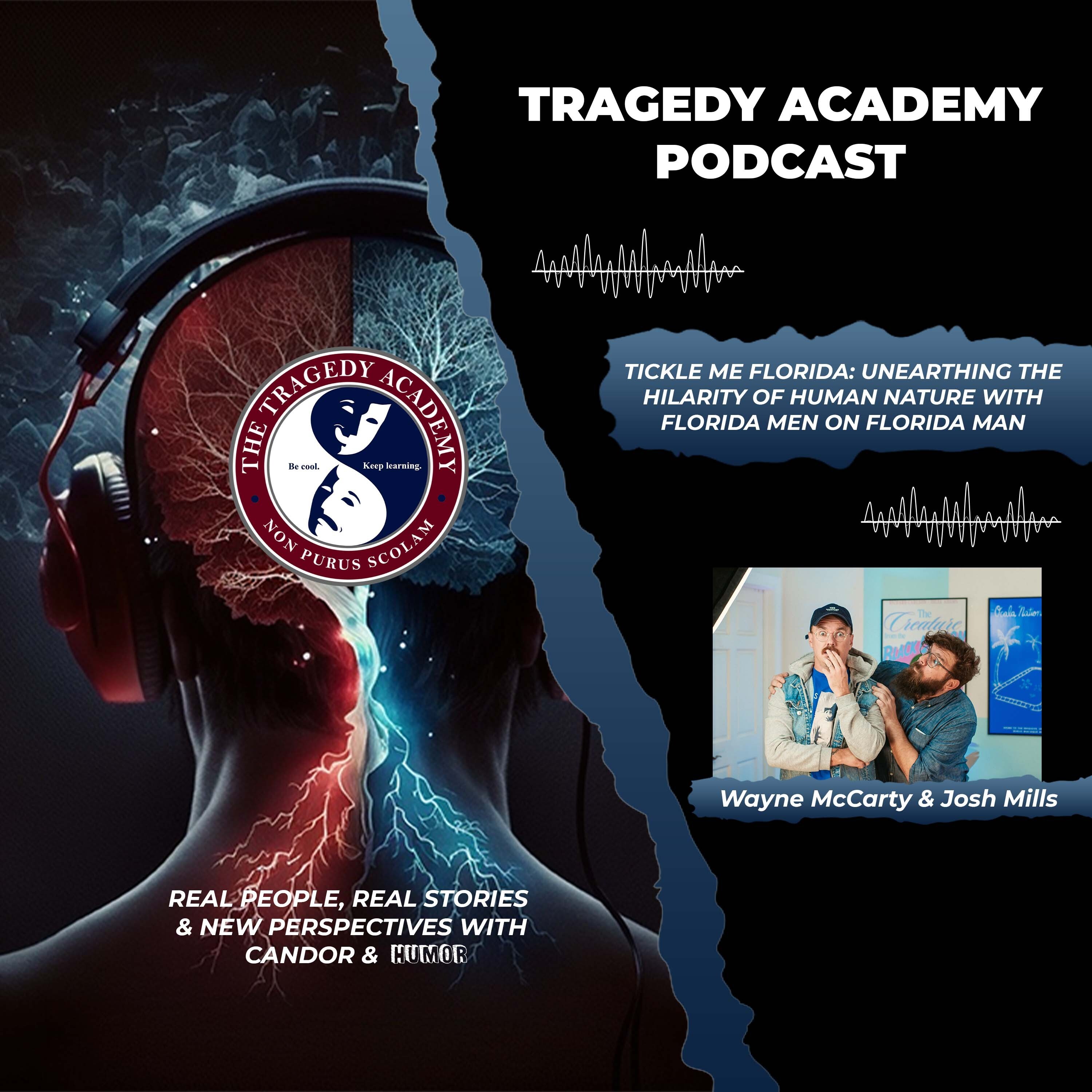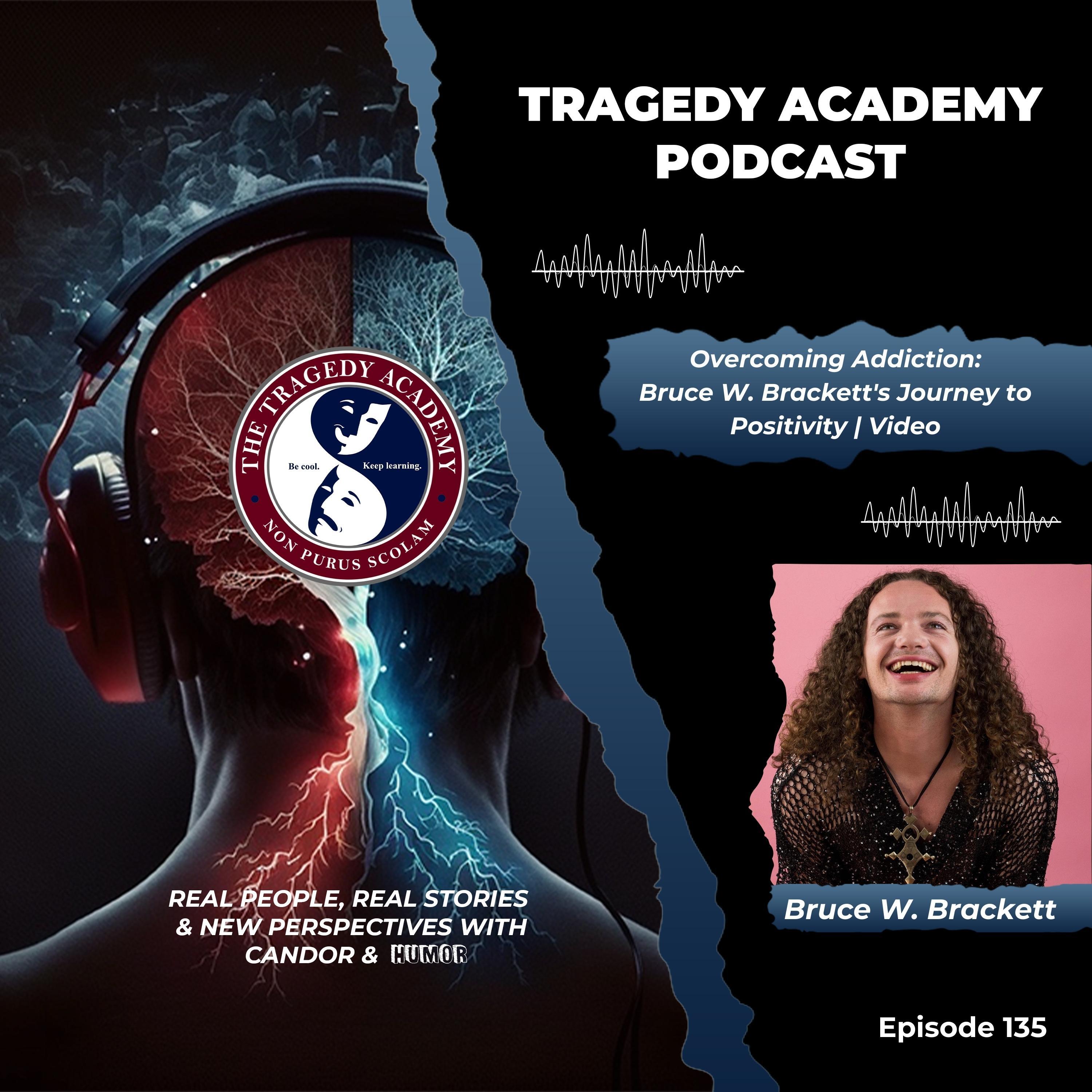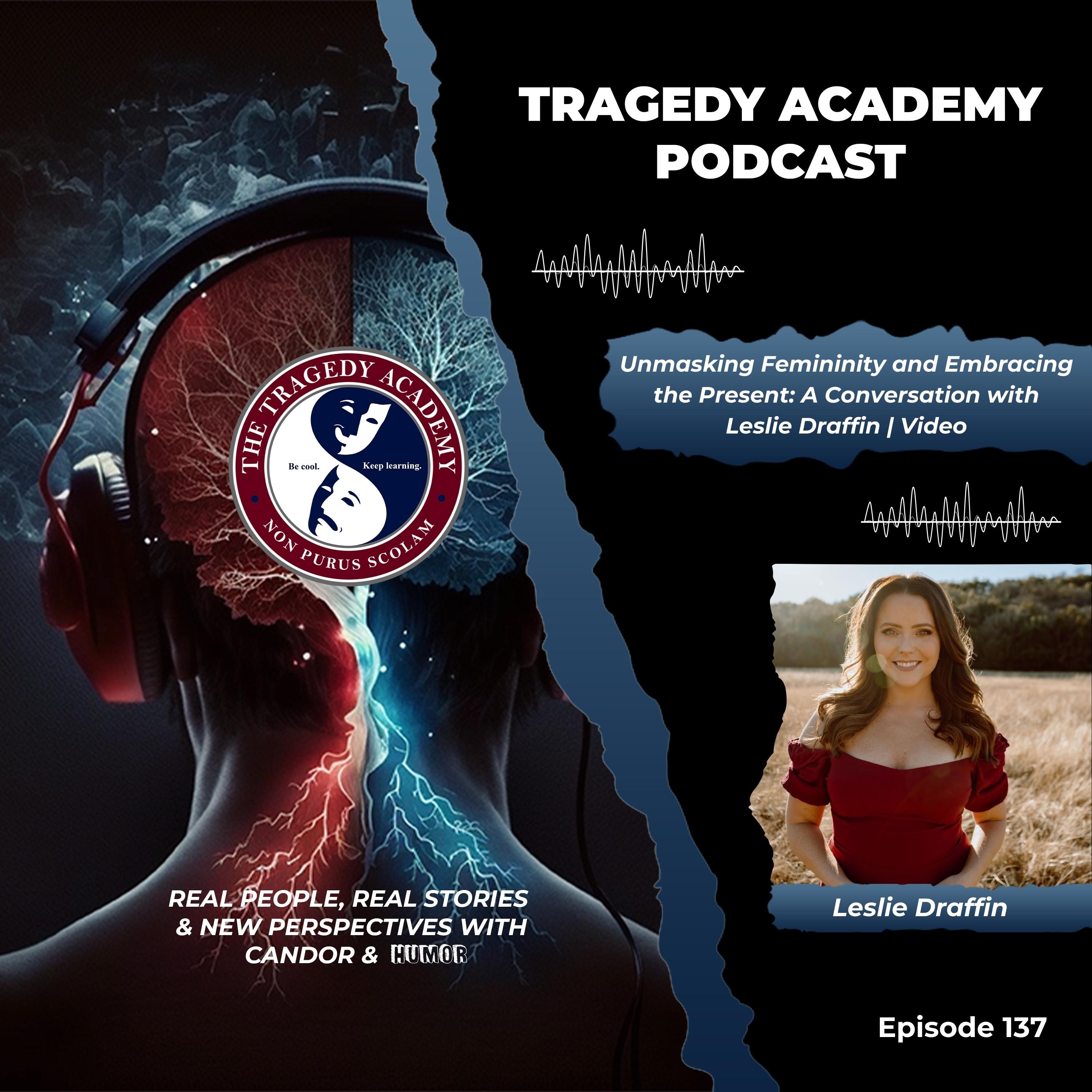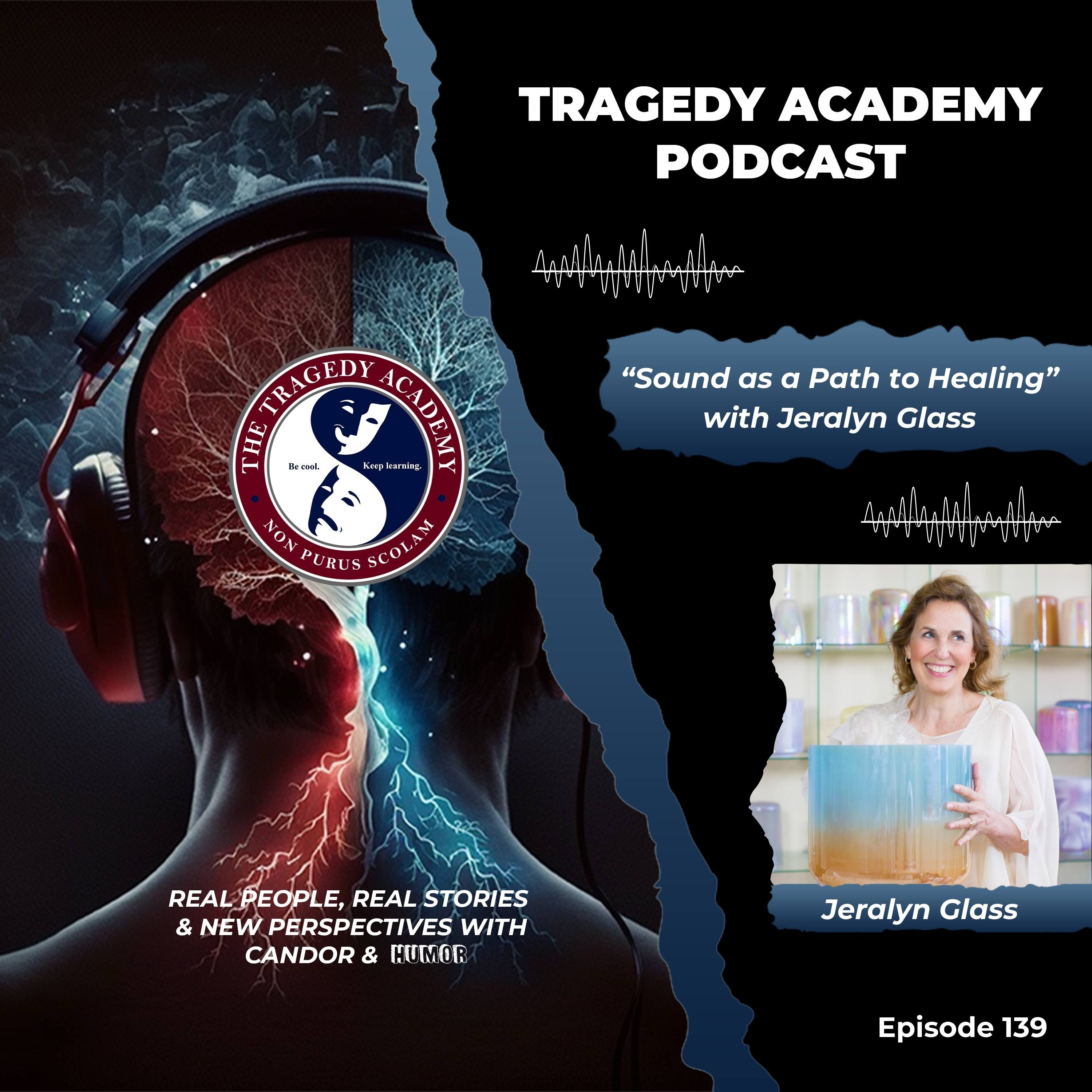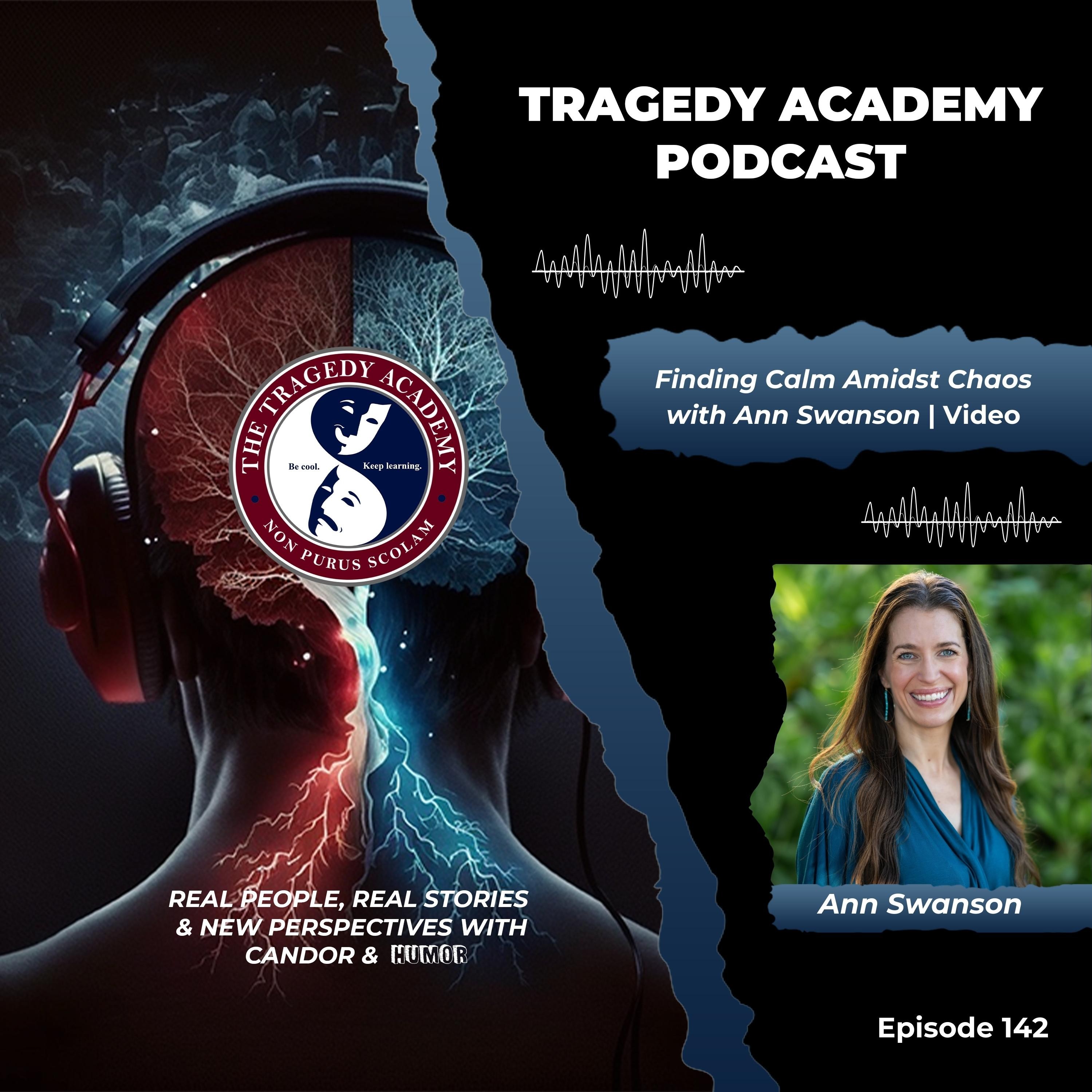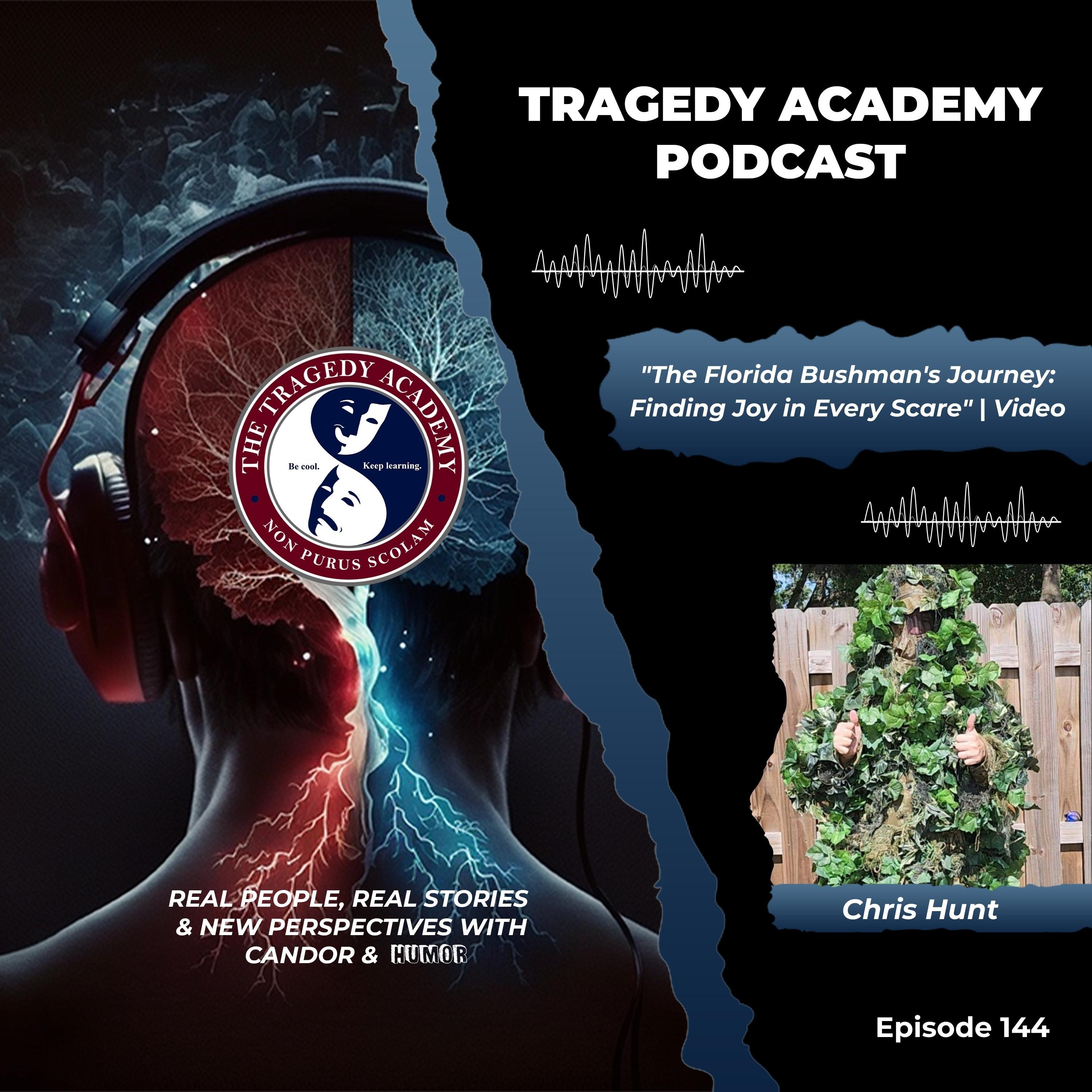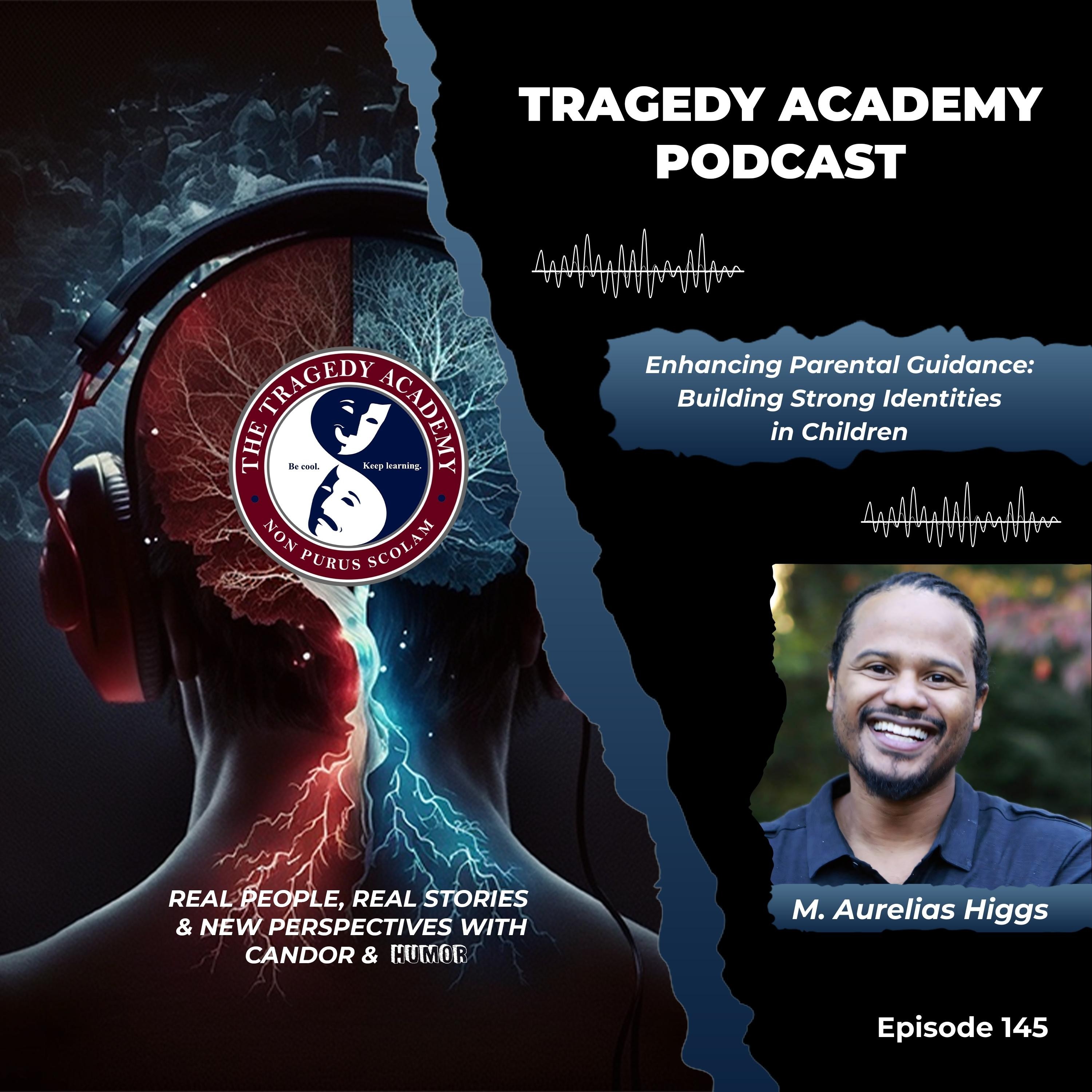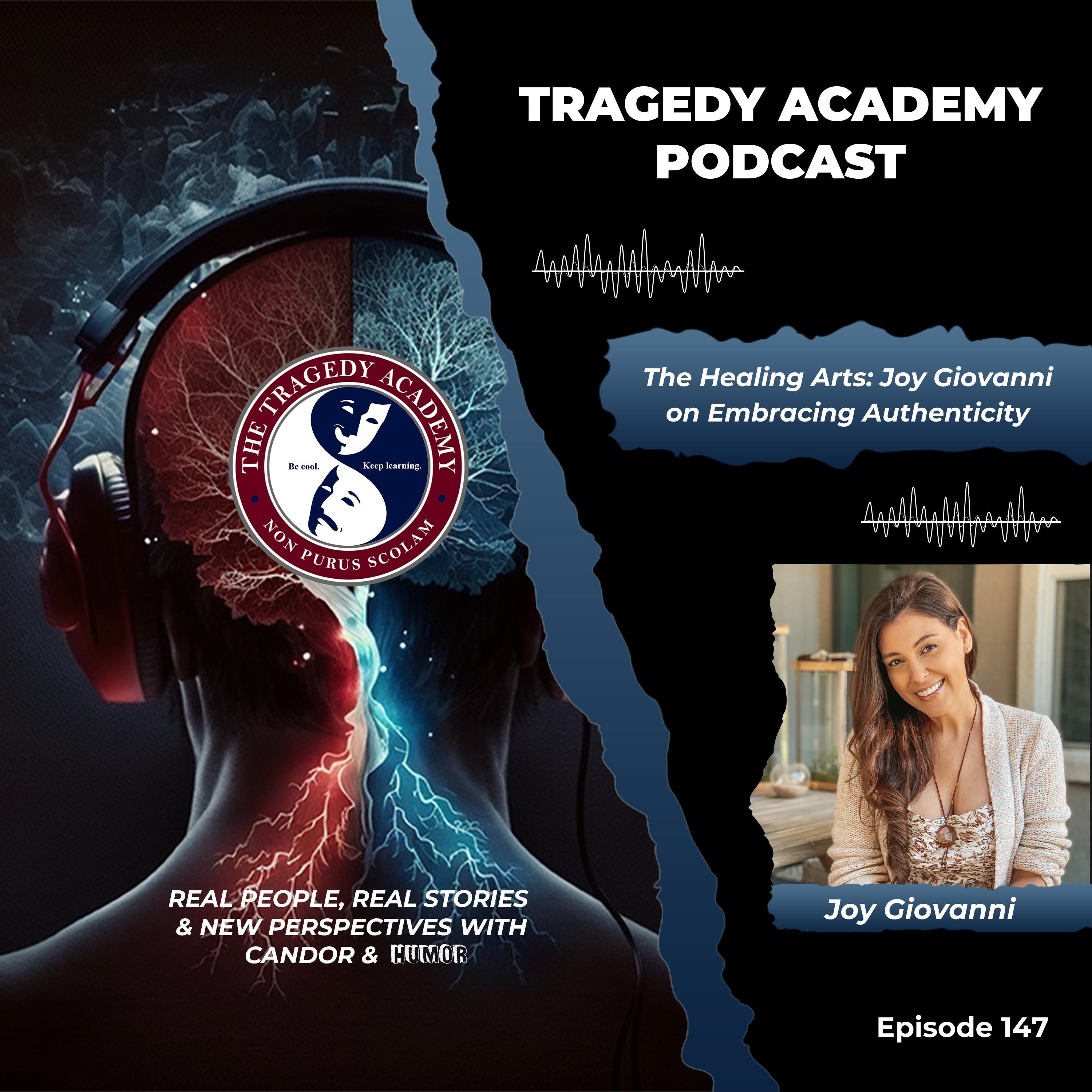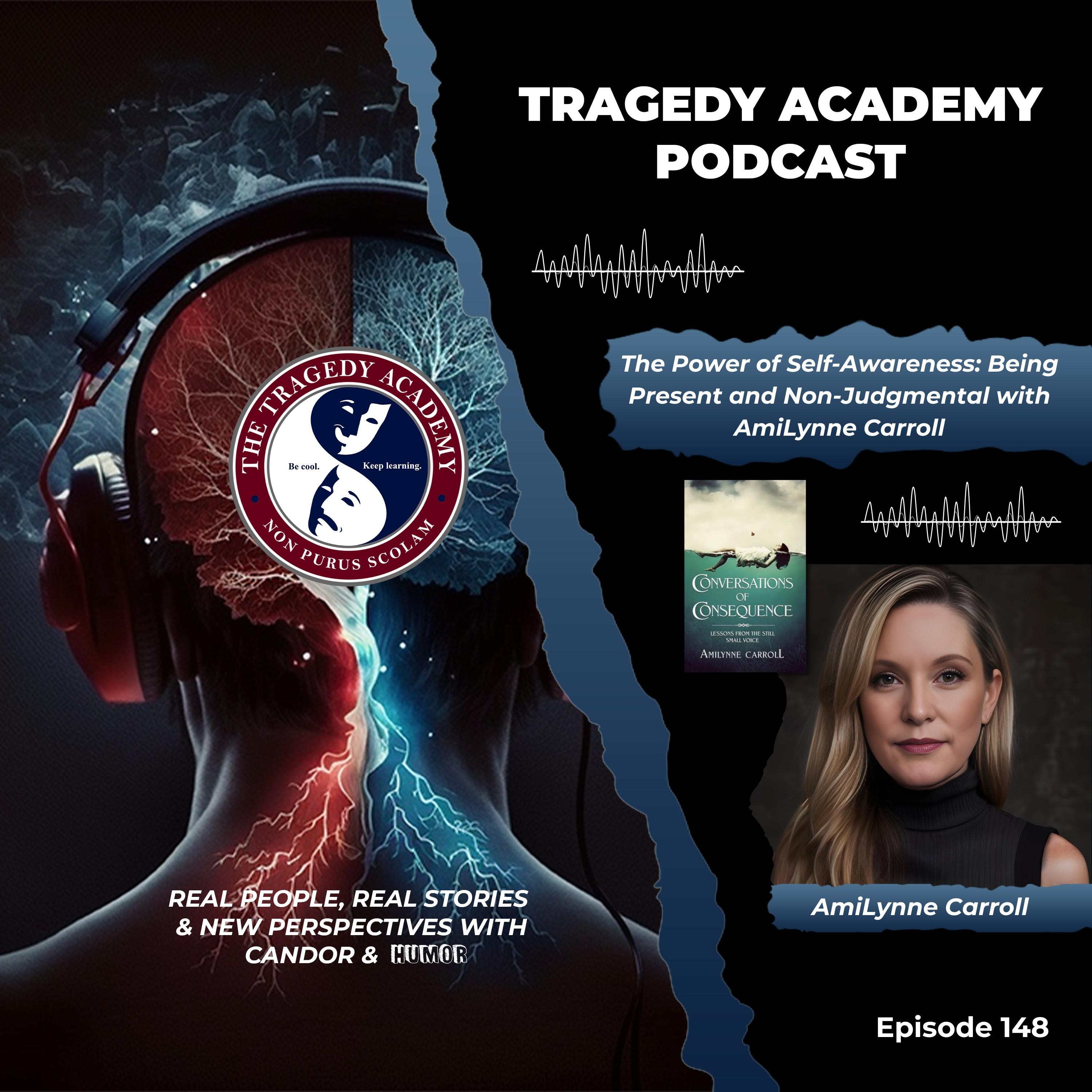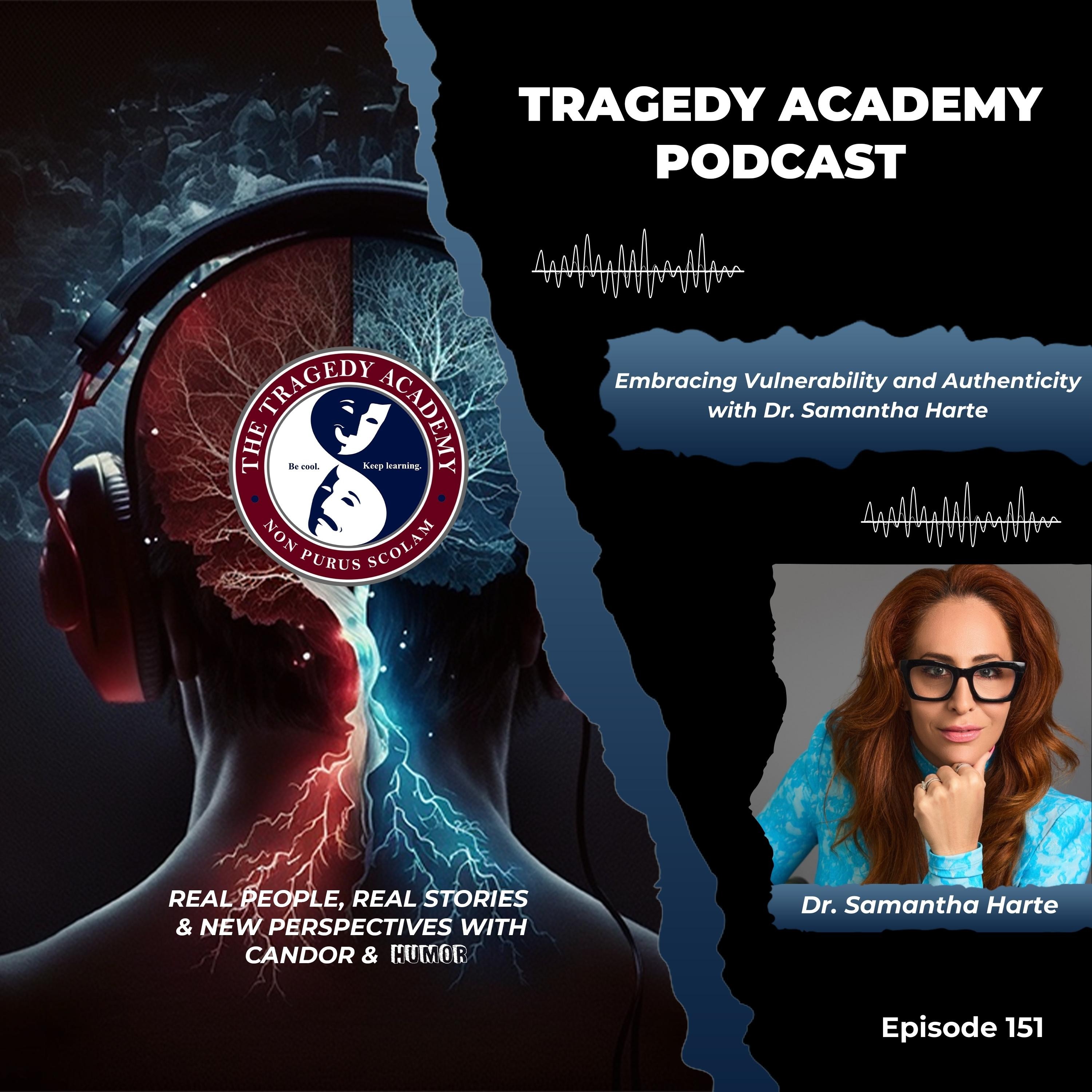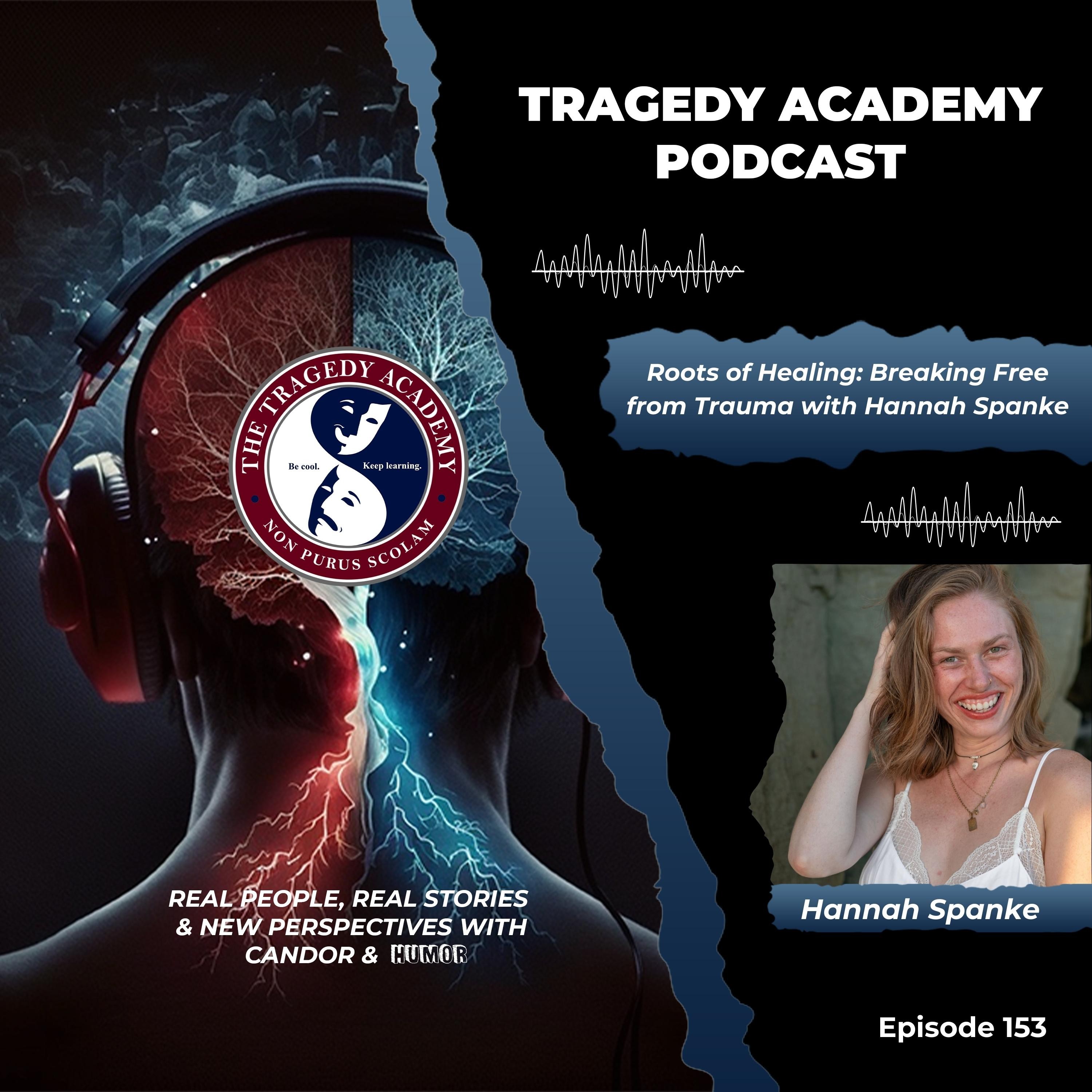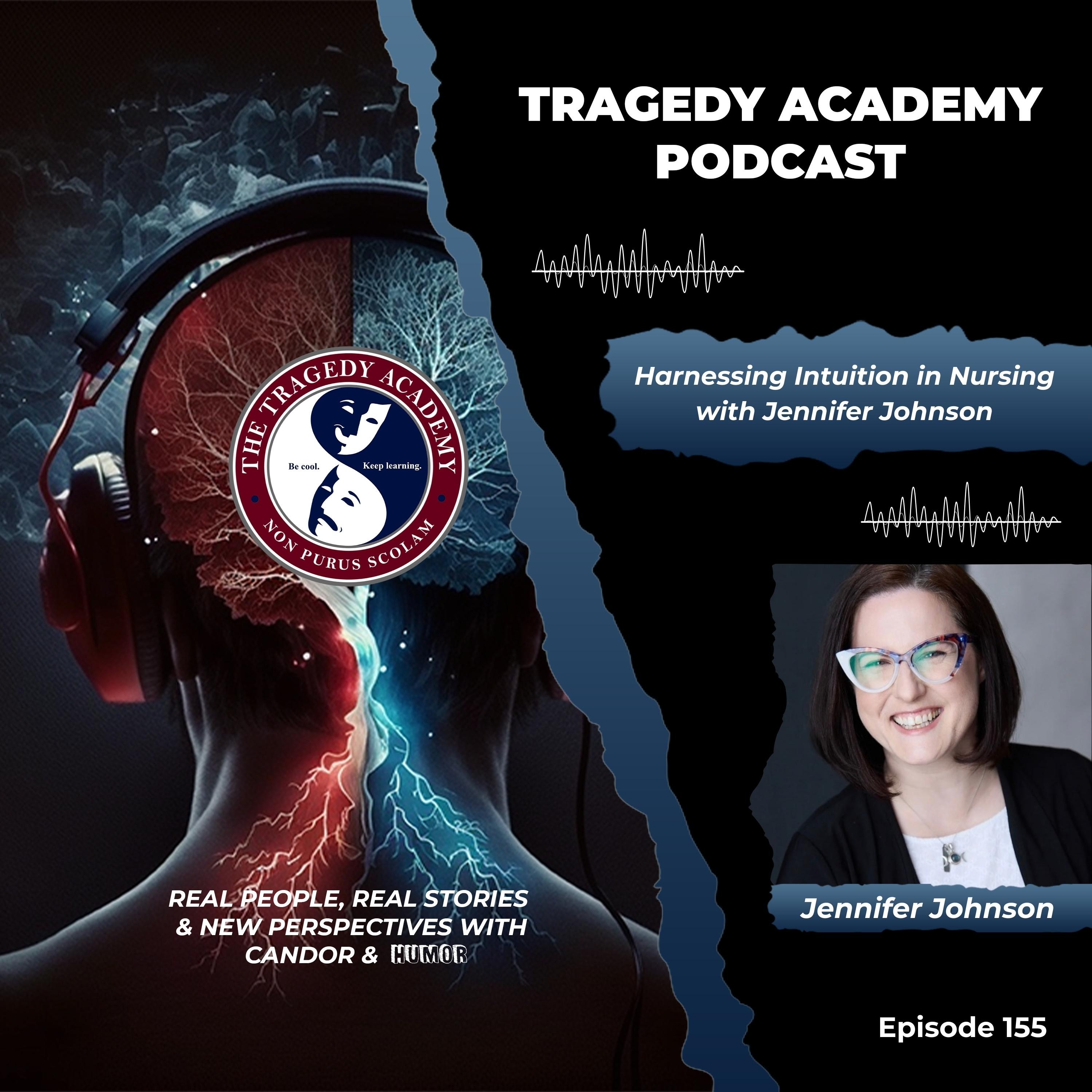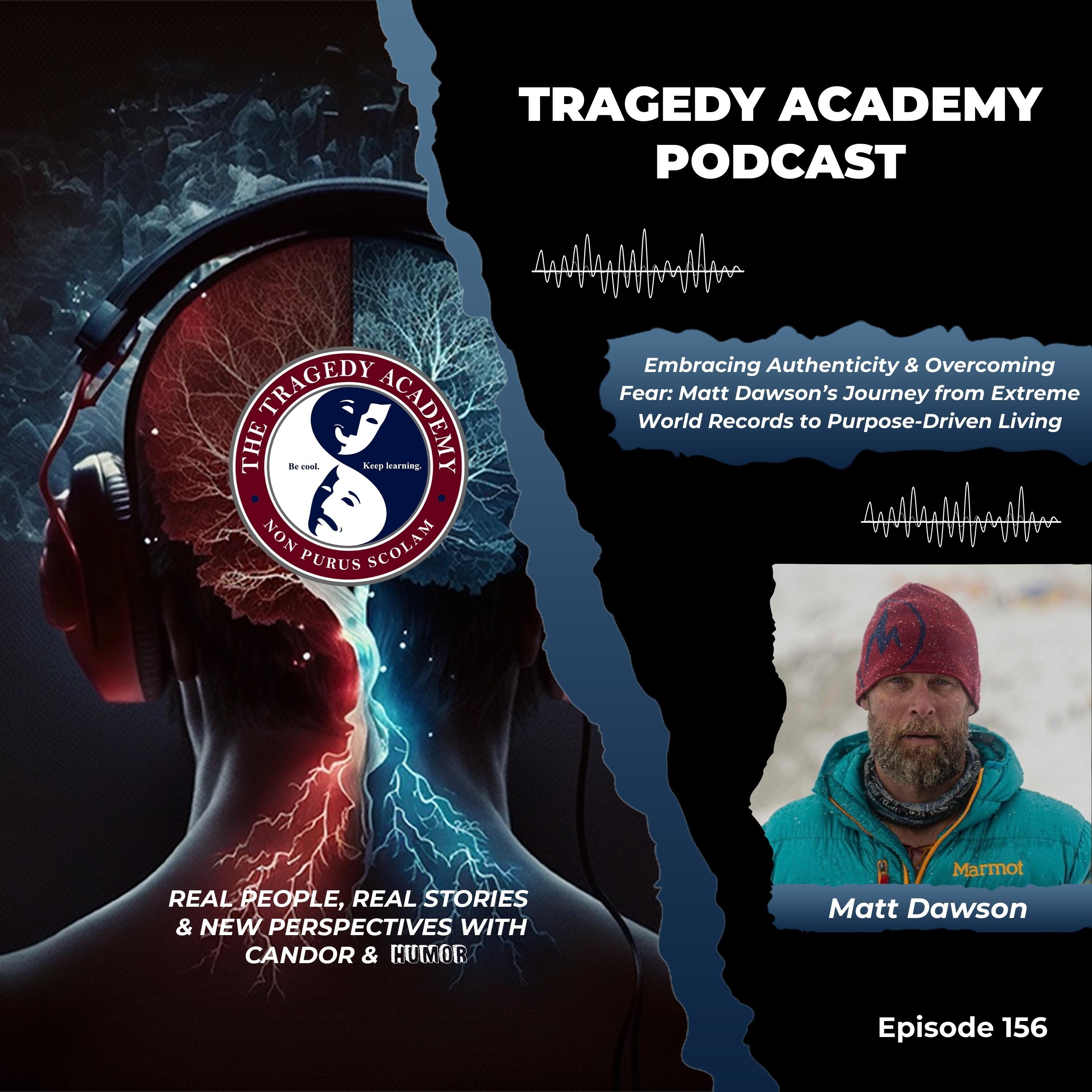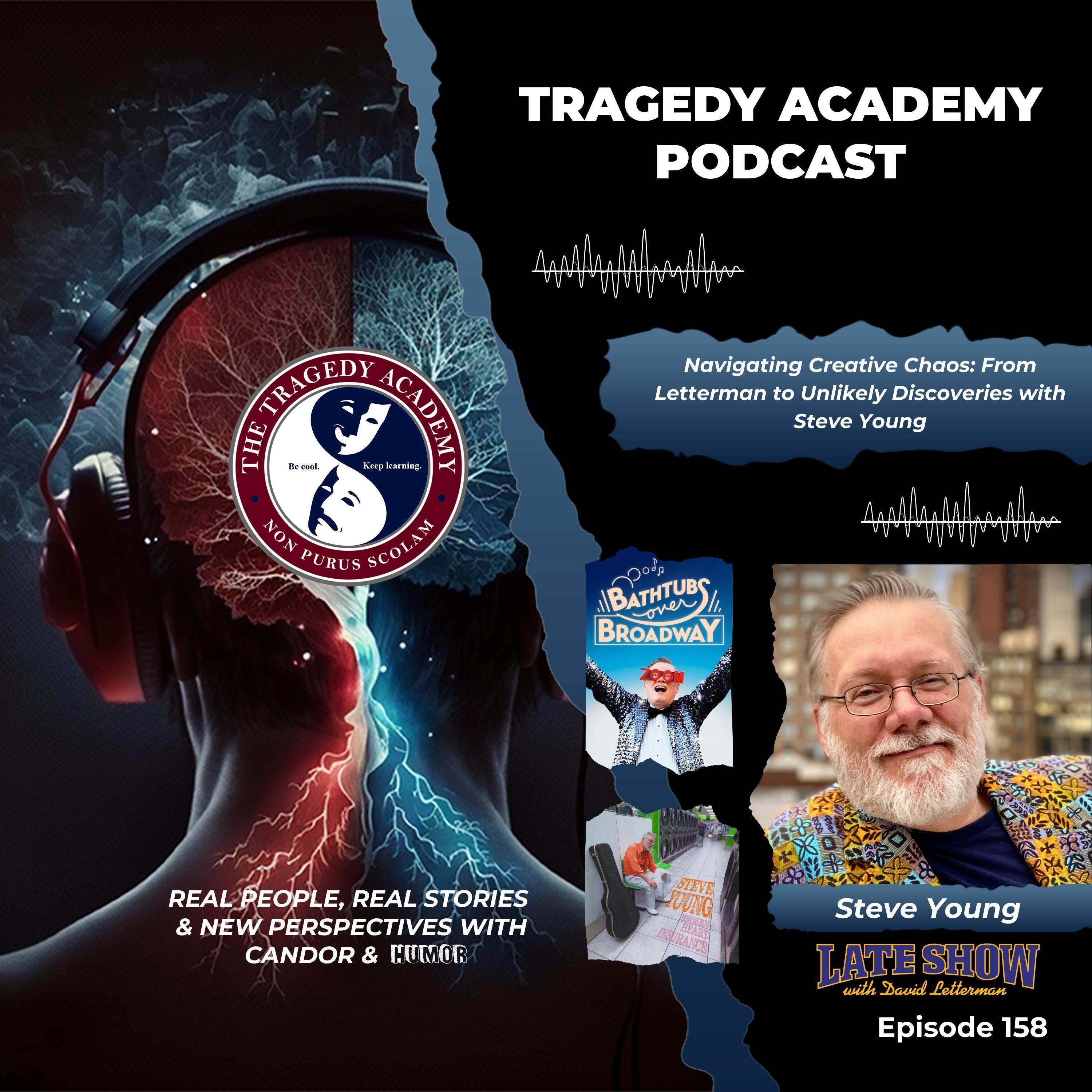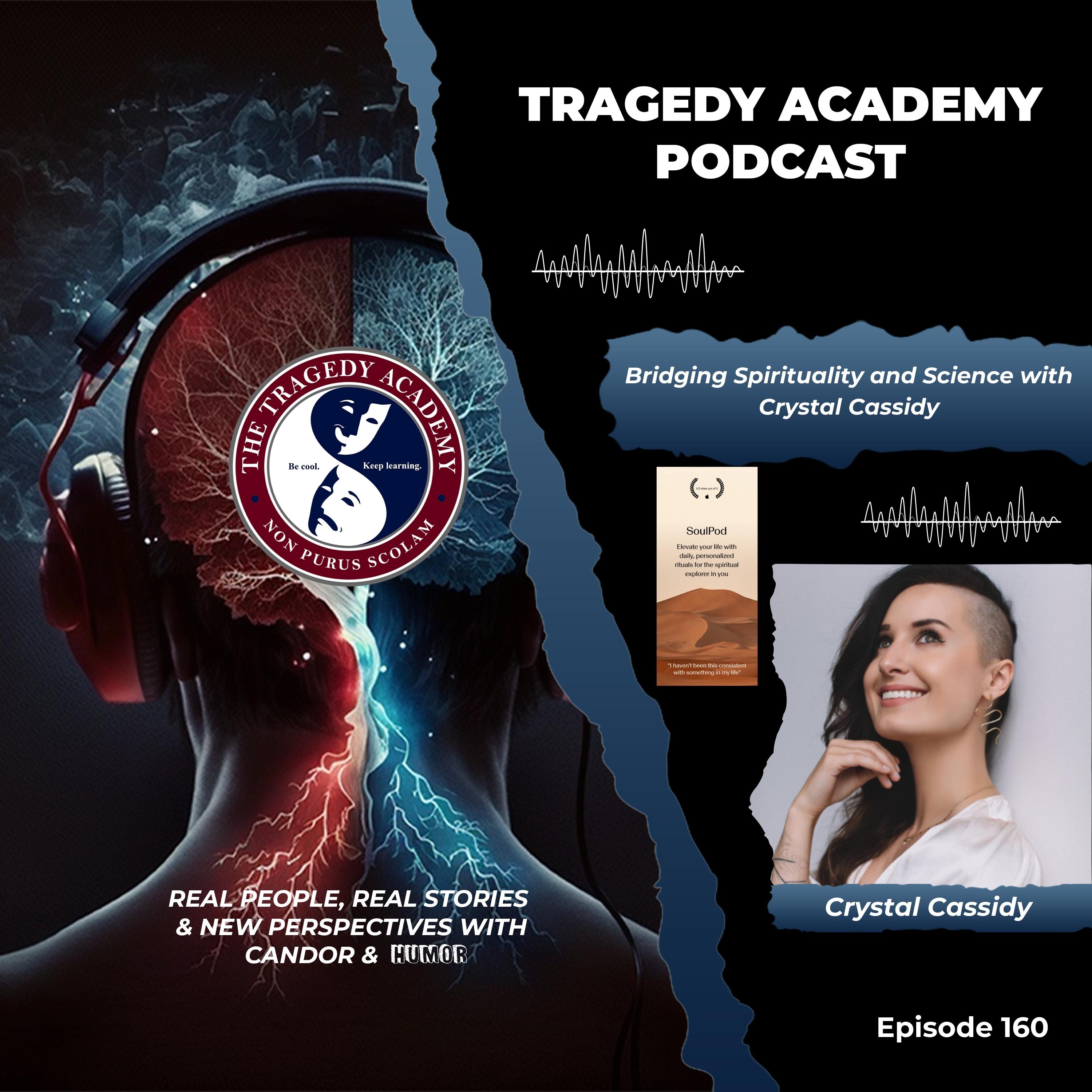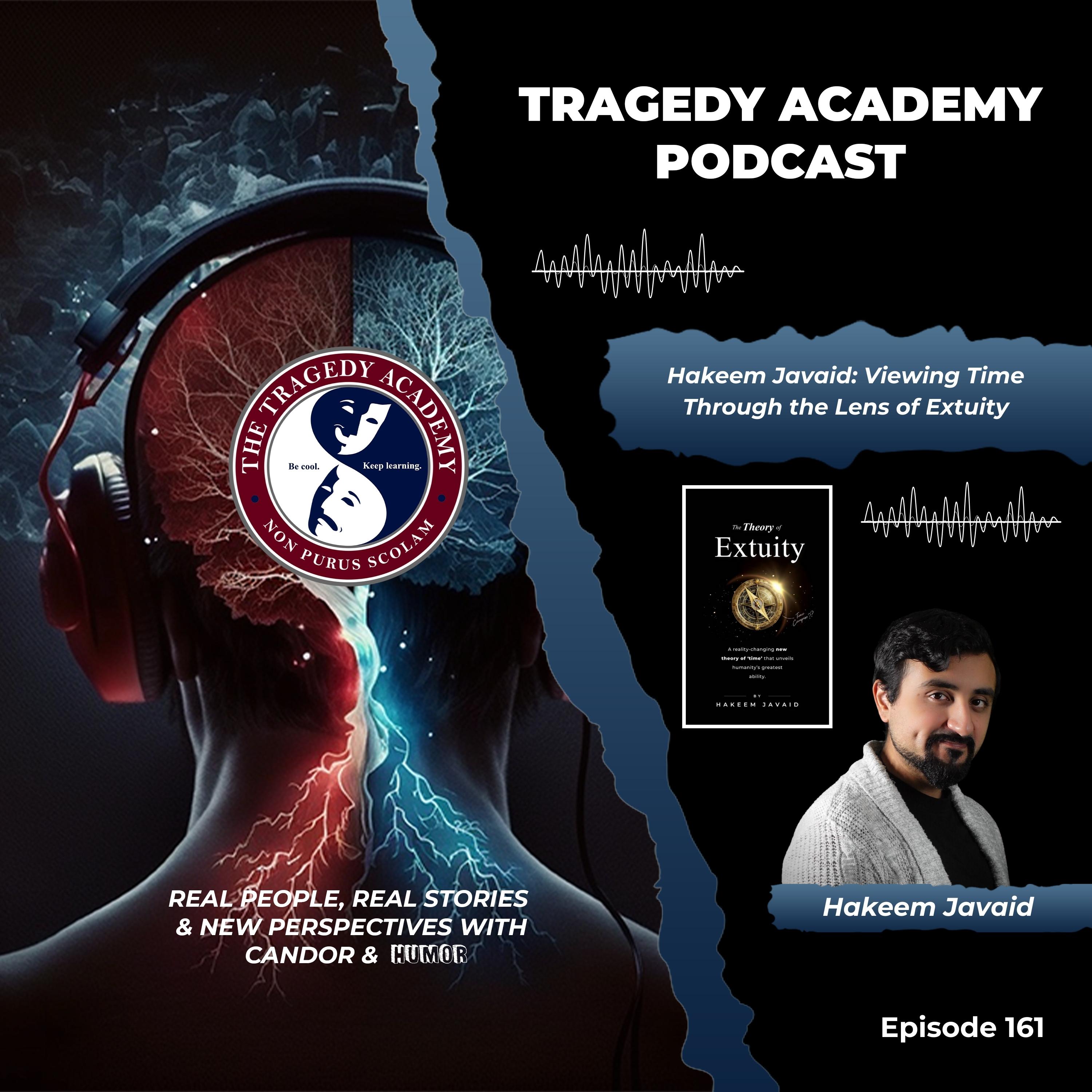Capturing True Essence: The Power of Photography with Elizabeth Snyder | Video
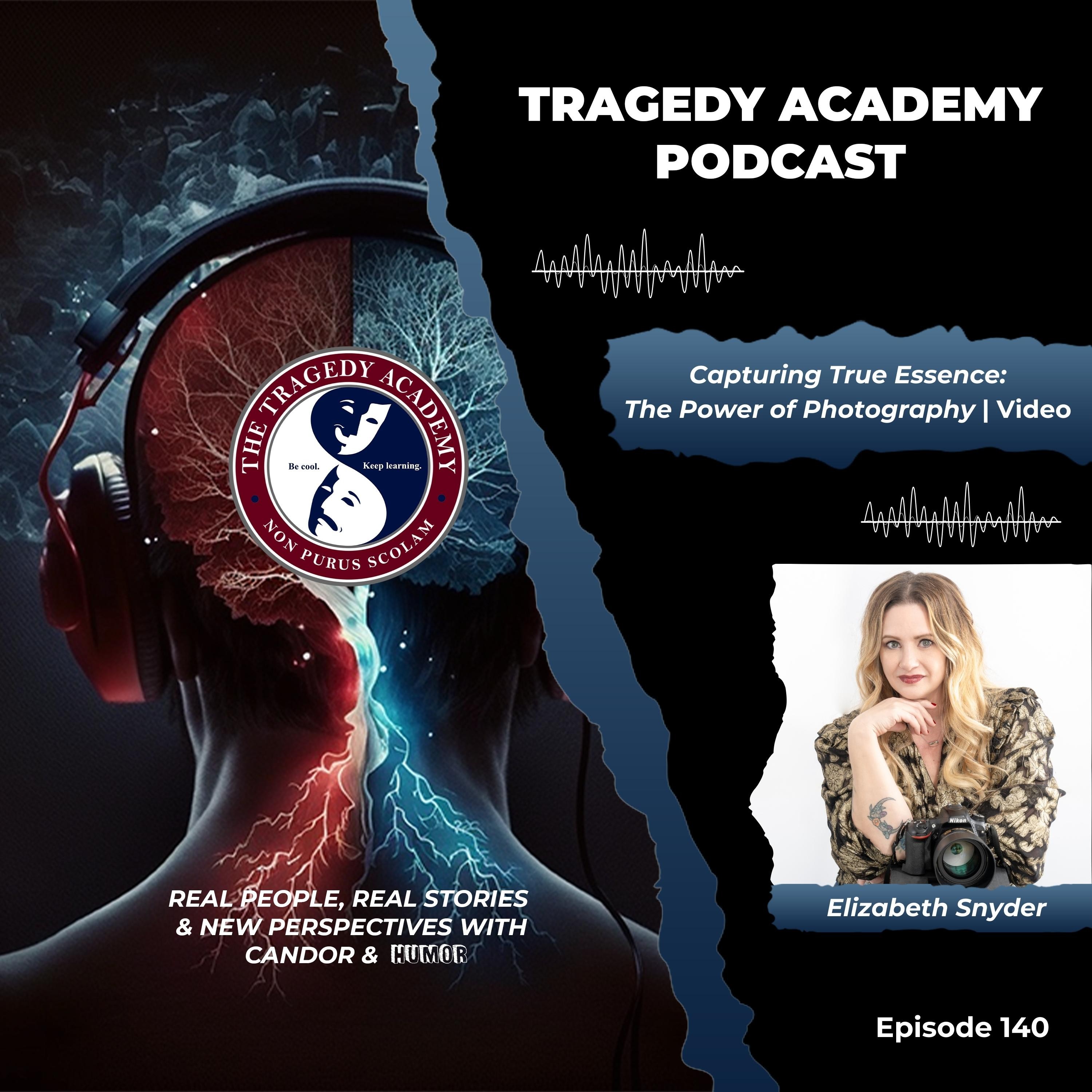
In this episode of The Tragedy Academy Podcast, Jay sits down with master photographer Elizabeth Snyder, who shares her inspiring journey into photography and her mission to help women embrace their true beauty through portraits. Elizabeth's passion for capturing the true essence of her subjects shines through as she discusses creating a comfortable environment for women to be themselves in front of the camera. She also touches on her personal experiences with cancer, the impact of environmental factors on health, and the importance of mental well-being. 📷✨
Elizabeth Snyder takes us on a deeply personal and powerful journey in this episode. Her story begins at a young age when she discovers the magic of photography and evolves into a career dedicated to women's empowerment. She explores how photography can be transformative, helping women see their worth beyond societal expectations and embrace their true selves.
Throughout the episode, Jay and Elizabeth delve into the impact of photography on self-esteem and the legacy it leaves behind. Elizabeth's experiences, including battling cancer and understanding environmental health factors, have shaped her approach to life and art. This conversation is rich with insights on self-acceptance, mental well-being, and finding one's purpose. 🌟 Join us for an episode that captures the art of photography and the profound stories behind the lens.
Key Takeaways:📸 [00:13:54] Photography can capture the true essence of a person and help them feel their worth.
💪 [00:14:31] Women often struggle with self-image due to societal expectations, but it's important to embrace their beauty and be comfortable in front of the camera.
👩👦👦 [00:15:23] The importance of being present in our own lives and leaving a lasting legacy through photographs.
🎨 [00:27:22] Self-acceptance and living authentically are key to happiness and fulfillment.
🌿 [00:35:24] Environmental factors, such as the food we consume, can significantly impact our health.
🧘 [00:45:28] Mental well-being plays a crucial role in our overall well-being and should be prioritized.
📷 [00:47:41] Photography can be a powerful tool for self-expression and self-acceptance.
✨ [00:48:18] Embracing our flaws and imperfections is essential for personal growth and self-love.
Elizabeth Snyder is a master photographer with over 33 years of experience, recognized for her remarkable ability to capture the true essence of her subjects. From trauma to triumph, Liz beat the odds, transforming a life of poverty, abuse, and neglect into one of success and fulfillment she never dreamed possible. Liz has connected with thousands of women through her photography, learning a profound secret. Every woman struggles with body image and confidence because we give every bit of ourselves to our responsibilities and put ourselves last. 🌟
Dedicated to helping women feel their worth through portraits, Elizabeth's work emphasizes the importance of self-acceptance and embracing one's true beauty. Her journey, including overcoming personal challenges such as cancer, has greatly influenced her approach to life and art. Elizabeth's award-winning work has inspired many to embrace their authentic selves and pursue their passions. Her unique perspective and expertise offer a transformative experience that empowers women to see their true value beyond societal expectations. 📷✨
🌟 Don't miss out on this enlightening conversation! Subscribe to The Tragedy Academy Podcast for more powerful stories and insights. Leave us a review and let us know how the episode resonated with you. Share the episode with your friends to spread the message of self-acceptance and empowerment. Remember to "Be cool and keep learning." 💫
🔗 Dive deeper into Elizabeth Snyder's inspiring work! Visit her website at Elizabeth Snyder Photography to explore her stunning portfolios and learn more about her photography sessions. Follow her on social media at ESPPLC for updates and behind-the-scenes content. Elizabeth's workshops on living your purpose and embracing your true beauty will not be missed. 🌟
In this heartfelt episode, Elizabeth Snyder reminds us of the power of capturing true essence through photography and the importance of embracing our authentic selves. Tune in next week for another powerful episode of The Tragedy Academy Podcast. Be cool, and keep learning! 🌟🎧
🚀 Welcome to The Tragedy Academy Podcast 🚀
Immerse yourself in the transformative power of The Tragedy Academy Podcast, an extraordinary platform showcasing stories of resilience and redemption. As we unravel the rich tapestry of human experiences, our episodes meld wisdom with wit, enlightening and entertaining. Hosted with profound empathy, we delve into the indomitable spirit of our guests, providing our audience with opportunities to gain insights, share laughter, and experience growth. Become a part of our community that values genuine connections and collective healing through the strength of shared narratives.
📲 Connect with Us!
Explore more about The Tragedy Academy: https://www.thetragedyacademy.com
🌟 Support and Grow With Us 🌟
🎧 Podcasting Made Easy: Build your stunning podcast website with Podpage:
Podpage: https://bit.ly/3LSCBh5. @podpagehq
📲Take your recording to the next level with
Riverside.FM: https://bit.ly/3ImjNWD @riverside.fm
👕 Get the Gear Loved Jay's t-shirt from the latest episode? Grab yours at Into the AM. @intotheam
Into the AM: https://bit.ly/431MLD5.
📘 Expand Your Mind Dive into our recommended reads at our Bookshop.
Bookshop: https://bit.ly/42pPHcv.
✅ Stay Updated – Subscribe!https://www.youtube.com/channel/UCEUXqlregig6vcrvuVNGlKg and never miss an episode.
📱 Follow Us on Social Media
- Instagram: @thetragedyacademypodcast
- Facebook:@TheTragedyAcademyPodcast
- Twitter: @Tragedy_Academy
- TikTok: @thetragedyacademy
💖 Support The Tragedy Academy. Your support helps us keep bringing meaningful content. Consider donating through PayPal or BuyMeACoffee.
PayPal Donate: https://www.paypal.com/donate?hosted_button_id=YMU9L4TBWX6AG
Buy Me a Coffee: https://www.buymeacoffee.com/tragedyacademy
The Tragedy Academy is a show created to bridge societal divides in a judgment-free zone using candor and humor.
Be cool. Keep Learning.
[00:00:32] Elizabeth Snyder: Yeah, sure. Yep. All good.
[00:00:33] Jay: Yeah. Welcome to the Tragedy Academy, a show created to bridge societal divides in a judgment-free zone using candor and humor. My name is Jay, and we are joined today by Elizabeth Snyder, a master photographer dedicated to helping women feel their worth by capturing their true essence through portraits. You've got 33 years of experience, and you've won a lot of awards. How are you doing today?
[00:00:54] Elizabeth Snyder: I'm doing well. How are you?
[00:00:57] Jay: I am living the dream. You're out in Buffalo, right? How do you like it up there?
[00:01:03] Elizabeth Snyder: You know what? I do like it. I don't love our winters, but we always have really beautiful springs and falls, so it makes up for it.
[00:01:12] Jay: I get it. I lived up in the Watertown area for about five years when I was in the army. It was the land of the frozen chosen. It was so stinking cold.
[00:01:22] Elizabeth Snyder: Yeah, it is. It's pretty cold. We live between two lakes, so we get pounded with snow.
[00:01:28] Jay: That lake effect snow is no joke.
[00:01:30] Elizabeth Snyder: No, it isn't.
[00:01:30] Jay: Oh, we got 10 inches.
[00:01:32] Elizabeth Snyder: I'm like, we got four feet. People can't even comprehend what falls here.
[00:01:38] Jay: Exactly. At any rate. First of all, welcome to the show. And I want to tell you, thank you for being someone that is pursuing their authentic passion. You can see that interacting with people is really your true gift and that your talent is the work that you do day to day with your pictures. That's what I interpret from this. That's why I'm so excited to sit down and talk with you because I think it's a blending of two things that a lot of people don't do. And I think that's why you get the results that you do. It doesn't necessarily have to be all technique and all technical skill. It's what you can pull from your art.
[00:02:26] Elizabeth Snyder: 100%. Thank you very much. And thank you for the work you're doing because you're getting all of these stories out there. And I have been listening, and it's fantastic. You guys are doing a great job.
[00:02:37] Jay: No, thank you. I appreciate it. So why don't you tell me a little bit about yourself, how you got into photography, and why this means so much to you.
[00:02:45] Elizabeth Snyder: Oh, for sure. Okay, so I'm Liz. I own Elizabeth Snyder Photography, and I got started when I was eight years old. So my aunt, who is about eight years older than me, she's my half-aunt. So her grandfather gave her a whole bunch of equipment and chemicals and everything else to set up a modest darkroom and studio in her attic.
[00:03:12] Jay: And?
[00:03:13] Elizabeth Snyder: So I grew up pretty... okay, it was a little traumatic and the family knew. And so every once in a while, she'd pick me up and get me out of the house and get me to come with her.
[00:03:26] Jay: That's why she picked me up and got me out of the house.
[00:03:30] Elizabeth Snyder: Sure. For those of us who grew up in scenarios like that, having a rescue human means a lot. They see it, they do what they can when they can, which means a lot.
[00:03:45] Elizabeth Snyder: It means a ton. Yeah, absolutely. From then on, I was just in love with it. I helped her set up the studio, the darkroom. And when I saw what the darkroom could do, it was like real magic. It was absolutely awesome. And from there, I helped her with her headshot business.
[00:04:12] Elizabeth Snyder: And then life happened in between. I had two kids pretty early. I got married really young, then divorced, and all of the things that follow, including hunger and food banks and welfare and all the rest. I stayed true to my passion. So after opening my business 13 years ago, I have never been happier. I was able to make enough money to support me and my kids and get a house and all the rest.
[00:05:01] Elizabeth Snyder: It's been a wild ride, but I wouldn't have had it any other way. And honestly, all the stuff that happened before led me here, so I'm actually grateful for it.
[00:05:11] Jay: Speaking my language. You can't be happy with where we are if we're not grateful for where we came from. I say on the show a lot that you have to hit your knees to plant a tree before you can grow into something. It sounds like you had a toolbox given to you in the beginning. You had a recognized talent, a gift, and a passion that you pursued young but had to endure life.
[00:05:40] Jay: We put priorities on societal benchmarks that say we're not successful if we're not checking these blocks—being a mother, doing corporate things. There's even a slight shame veil that comes with pursuing artistic endeavors. That's not a real job, and those types of things. But it sounds like you were able to take traumatic times, happiness, trials, and tribulations and wrap them into a new form of art that helps you understand the human experience at a different level.
[00:06:22] Jay: You had a great entry into the world where you learned to be hyper-vigilant. You can now recognize people, but you don't know what to do with that. You get out there, live like a jackass because of your traumatic background—I'm speaking about myself now, right? You navigate life, then you find a spot where you put the brakes on, and you say, "Okay, when was I happy? When was I not happy?" I was happy when I had my __ in my hands and I was not happy when I was pretending. We're trying to create an alternate path with socially acceptable likes and dislikes, jobs, material things, and all that. But you recognized that you have a chance to go back to your roots, which is something people are not doing today.
[00:07:25] Jay: When you decided to go back to your roots, did you have a point in time that you were shooting for? I say this because there are timeless moments in our childhood that we don't find as adults. Art, whatever your passion, has that timeless beginning. Do you know where you went back to, to find your roots?
[00:07:46] Elizabeth Snyder: Honestly, it was the year I turned twelve, which was extremely difficult. It was a rough time in our home. I had all the back issues of Photographic America that my aunt had given me, and I memorized all of them—the masters, what they were doing, and why they were doing it.
[00:08:23] Elizabeth Snyder: That is what I went back to because I was working at a bank, foreclosing on people's businesses, killing their dreams. It was soul-sucking. I couldn't do it anymore. I didn't want to do my job; it was horrible.
[00:08:45] Jay: Agreed. Yeah, 100%. So it was bad. A friend of mine at work asked, "If you could do anything, regardless of time, circumstance, or age, what would you do?"
[00:09:22] Elizabeth Snyder: My knee-jerk reaction was photography. It was always photography. So I had an old camera and started practicing again, getting good with my settings and figuring it out. By then the world had gone digital, whereas I had learned everything in analog. I'm thankful I didn’t go to school for it, as I would have had to relearn everything anyway. It blossomed from there. Within a year, I could quit my bank job and make photography my full-time gig. I never looked back. It’s been fantastic.
[00:10:11] Jay: That’s amazing. I would be remiss not to point out that having that analog background gives you a leg up in the digital world. You’re creating an artistic expression in a moment that requires an understanding of lighting, focus, and emotion—it's one shot, one kill. You don’t get many of those, and you don’t know if you screwed it up until later.
[00:10:47] Elizabeth Snyder: Exactly.
[00:10:47] Jay: Another thing, you have the talent to create a better picture once it’s digital. You bring something true to form that meets the criterion of a great photo before enhancements. But those starting with digital rely on enhancements, which can take the life out of photos.
[00:11:14] Elizabeth Snyder: Yeah, for sure. You had to trust you knew what you were doing with lighting, using meters to figure out light sources, strength, f-stops—all that. Even today, I can't see myself doing it differently without coaching properly to get the shot on the first try. Film is expensive.
[00:11:45] Jay: Time has replaced film. We have to mass-produce our art to survive, but it doesn’t look like you do that. The experiences seem individual. I went through your site and your photos.
[00:12:03] Jay: When it comes to the women’s portraits, which is an amazing thing to address, the women in your pictures don't look like they're in pictures. They look like they're in a happy environment. Most people’s professional photos seem forced, but in yours, one sees genuine emotion. You draw on people’s emotions and make them feel comfortable. How do you help women find comfort in front of a camera, which has been a mortal enemy of our generation?
[00:13:37] Elizabeth Snyder: For sure. My clientele is mostly Gen X, maybe older millennial—women raised by boomers or silent generations who didn’t have that comfort with cameras. Women struggle with self-image due to societal pressures. Media bombards us with messages that we're not good enough unless we have certain looks, clothes, or products. Meanwhile, we try to keep up with celebrities with resources we don't have—no staff or help. Beyoncé has the same 24 hours a day as us? It isn't true. She has a staff.
[00:15:05] Jay: Help her.
[00:15:07] Elizabeth Snyder: We don’t give ourselves credit. Especially moms, who hide behind their kids in pictures or just opt out of them.
[00:15:17] Jay: Whatever.
[00:15:18] Elizabeth Snyder: There was someone close to me who passed away a few years ago. When someone dies, the first thing we do is look for pictures for a slideshow or board at the wake or funeral. We couldn't find any pictures from the last 20 years because she felt so low about her body and face that she wouldn't allow pictures. But that's your legacy, what you're leaving behind. Your kids, nephews, nieces—they don’t care about the extra weight; they want you. They see you.
[00:16:05] Jay: They see you.
[00:16:08] Elizabeth Snyder: For women in my studio, sometimes I’ll share that story, but I don’t like to be too morbid.
[00:16:14] Jay: We talk about these things because they provide lenses. Lenses are experiences layered over time. If you look through someone else’s lens, you can empathize with them. So it's okay to discuss it—this person left behind a legacy, giving you a vision of how someone can hide behind a mask. They endured this for you to affect change after the fact. Your friend did more than most people. Photos serve as a gateway in time, but matter is neither created nor destroyed. It’s always now—never the future or past. So nobody leaves; they just change.
[00:17:50] Elizabeth Snyder: Exactly.
[00:17:52] Jay: For those without photos, it's like a radio station. You’re on 95.5, they’re on 87.7. You’ll get there, but they’re with you.
[00:18:06] Elizabeth Snyder: Yeah, I agree completely. When women come in, sometimes I’ll share that story if they’re nervous or keyed up. If it's a headshot their boss told them to get, sometimes they’re even a little angry about it. They’re upset they must do this. How do I take someone who doesn't completely love themselves and make them smile for real?
[00:18:45] Elizabeth Snyder: Everyone here gets professional hair and makeup because I can't do my job without it.
[00:18:53] Jay: You’re very professional with hair and makeup.
[00:18:59] Elizabeth Snyder: Thank you. Even if they don't wear makeup, we can look barefaced and natural. It makes my job easier in the long run.
[00:21:00] Elizabeth Snyder: I tell people: How often do you get professional hair and makeup done? Maybe your senior pictures, your wedding—that's about it. It makes women feel pampered. Natural beauty is great, but a little pampering goes a long way.
[00:21:55] Jay: How often do we become mindful with ourselves? How often do we tell ourselves how beautiful we are? We don’t. Would you talk to your roommate the way you talk to yourself? No, so why talk to yourself like that?
[00:22:32] Elizabeth Snyder: Exactly. Why allow yourself to talk like that when you wouldn’t let someone else do it?
[00:22:48] Jay: So, what's your favorite part of the conversation before you start?
[00:23:18] Elizabeth Snyder: My favorite part is learning what they do, what led them there, and if it’s what they always wanted to do. Did they dream of being a mortgage foreclosure agent, or did they want to be a rock star or an astronaut? If they wanted to be an astronaut, they’re probably still looking at the stars. If they wanted to be a rock star, they're probably singing in their car. Those passions stick with us. I teach a course on living through your passion and purpose. It's easier to find your purpose than you think; it’s in minutes, not days or years. You just need to listen to yourself instead of someone else.
[00:24:22] Elizabeth Snyder: I start with deep questions. Of course, I don’t ask as soon as they walk in the door, but we warm up to them.
[00:24:34] Jay: But, tell me your deepest core wound.
[00:24:38] Elizabeth Snyder: I work with it so we can start cracking jokes and digging a little deeper. Saying "smile" isn't enough; I try to get a real smile once they’re comfortable. There's a huge difference between “say cheese” and an actual smile. We have more muscles in our face than almost anywhere else, and it’s seeing those tiny muscle movements that separates the two.
[00:25:30] Elizabeth Snyder: 100% of the time, they pick the natural smiles when I show them their photographs.
[00:25:37] Jay: We’re so smart and so stupid at the same time, thinking we know better than ourselves, our creator. But our passions are fingerprints—unique to us. I’m an artist now, but I used to be in corporate as a solution architect, farming out jobs to other countries. I hated it. It's like these photos, you can't see a happy face in that environment. If you’re not 100% yourself, why would anyone love you?
[00:27:55] Jay: It's a gift to help people see they're worthy of love and time in front of the camera, to break down barriers and allow them to be themselves. I feel like you've gotten calls from people saying, "I changed my career."
[00:28:23] Elizabeth Snyder: Not completely a career switch, but there’s this woman I’ve shot with three or four times. At first, she had a very corporate, male-driven career. Now, she’s into health coaching, using a machine that reads DNA from hair samples, looking at what the body needs energetically. She's very into meditating and chakras, things I never thought she'd get into. I don’t claim I was the catalyst, but she’s transformed, and I’m so excited for her.
[00:30:04] Jay: Isn't that transformation beautiful when someone recognizes their potential and calling? People may judge when others talk about energy or phenomena, but we can’t explain feelings in our bodies—something is there. Western and Eastern religions, science, spirituality—they're telling the same stories in different languages.
[00:30:57] Elizabeth Snyder: I agree. Look at places like China with their medical practices—tapping, vagus nerve, pressure points. It's completely different from Western medicine. Once I started using these techniques, my life changed. I’ve had cancer twice, surgeries, and a BRCA2 diagnosis. I’ve had a bilateral mastectomy and hysterectomy, but I'm fine now.
[00:32:01] Jay: Cancer. If a doctor told me I had a tiny mark on my skin, my life would be over immediately. So surprised you can talk about it like this.
[00:32:24] Elizabeth Snyder: I always talk about it—it’s been a little far removed now, but we’re being poisoned. Our food here versus Europe’s food—our food causes reactions because of preservatives and chemicals they don’t allow. We are exposed all the time. I live in Buffalo, an area with nuclear waste testing and dumping, like Love Canal from the '70s. We’re the leader in MS and thyroid issues.
[00:33:31] Jay: It’s ignorant to think we’re not affected by our environment. Results appear over time, like how they evaluate veterans. My dad has Parkinson’s from Agent Orange exposure, but they said he wasn’t in the right location. If you smell garbage, you smell it no matter where you are. There are alternate methods to relieve these scenarios without abandoning Western diagnostic tools. Maybe not a bucket of pills, but fish tank principles apply—the human body needs the right balance inside. That involves what we put into it, environmental factors, and mental state. Meditation physically improved me by unravelling mental knots.
[00:36:05] Jay: Those knots don’t go away, but their effects on you lessen. Past traumas from bullying or upbringing now just become a page in a book, not the whole chapter. They dwindle in size. They no longer dictate your actions and reactions. You then become a witness to your own life, reflecting on past experiences without letting them control you.
[00:36:26] Elizabeth Snyder: For sure. I meditate several times a day now. They’re short sessions, but very helpful. It's not just about hanging onto your own stuff, but generational trauma too. They’re finding that trauma experienced by grandparents, great-grandparents, and so on, can be passed down. They’ve studied Holocaust survivors’ generations, realizing trauma keeps coming back.
[00:37:17] Jay: That makes sense. If entire cultures face identity erasure or annihilation threats, why wouldn’t they be hypervigilant? It's a reaction anyone would have. We have to understand that genetic and hereditary insanity, as I call it, is passed down. Mental health was ignored for a long time; look at the World War II generation coming back shell-shocked and untreated. The aftermath affected their kids and grandkids.
[00:38:03] Elizabeth Snyder: Exactly. We pass on these issues through generations, and they manifest in different ways, often unrecognized or misunderstood.
[00:38:28] Jay: Kids today are angry because they know more than those who came before. Things are changing so fast, and the older generation feels left out, angry because they don't understand. We've got to navigate this gap with empathy and education.
[00:38:57] Elizabeth Snyder: Yes, absolutely. The older generation grew up with definitive trust in government and media. They didn’t have access to information like we do now. When faced with conflicting information from multiple sources, it’s unsettling for them.
[00:39:49] Jay: Definitely. And pictures today can’t be taken at face value like back then. Digitally altered images have made them skeptical. The sheer volume of accessible images makes it confusing for a generation that once trusted photos as absolute truth.
[00:40:38] Elizabeth Snyder: Yes, and that mistrust extends to other areas of their lives. Adjusting to this new reality is tough for them.
[00:41:52] Jay: Speaking of imagery, let's discuss body dysmorphia, a real and prevalent issue. I grew up with gynecomastia and was ridiculed, leading me to hide from photos. I have gaps in my photographic history because I avoided cameras. My wife has been amazing with changing that, covering our home with family pictures. It really resonated when you said that, and I can’t imagine what it’s like to help people confront that vulnerability in front of the camera.
[00:43:29] Elizabeth Snyder: I think most people struggle with body dysmorphia. When someone says, “This is my good side,” they’re battling self-image struggles. Women, particularly, face more difficulties due to expectations to look a certain way. Kids today know their angles due to selfies, but older generations were raised amid different standards.
[00:45:16] Jay: We've given older generations few places to hold their self-worth outside of their roles in society, causing them to struggle more with body image. Women, especially, faced more scrutiny back then.
[00:45:55] Elizabeth Snyder: Exactly. And we feel guilty taking time for ourselves. We need to change that narrative and learn to be kind to ourselves. It's okay to take a break or pamper yourself.
[00:46:26] Jay: On naps, it’s funny how my wife denies napping. There’s a weird shame about it, like they're slacking.
[00:46:44] Elizabeth Snyder: Right? We must let ourselves off the hook and accept that it's okay to rest.
[00:46:52] Jay: So, how do you get women to trust you, to embrace who they are?
[00:47:02] Elizabeth Snyder: By listening to my story and sharing stories from other women. We try for at least that day to have them embrace who they are and where they’ve been. Those stretch marks and scars are marks of a life well-lived. The muffin top, whatever you’re bothered by, you lived through stuff. For example, stretch marks on your stomach because you brought a human into the world.
[00:48:19] Jay: Or a vehicle metaphor—you start with a sports car, move to a minivan, then a different stage. Be proud of it because it got you where you are now.
[00:48:41] Elizabeth Snyder: Exactly. When they see their photos, they’re often surprised by how good they look. We coach them through posing, emotion, and body posture before taking the shot. Those tiny confidence boosts can inspire long-term changes, like losing weight they’ve held onto for years just because they gained a bit of self-assurance.
[00:49:13] Jay: So, it acts as a catalyst. Someone on the show recently talked about creating branding movies, saying that nobody puts themselves in a bad light. It's similar; the most valuable qualities about yourself rise to the forefront, providing a goal to reflect on. If you drift from it, you can course-correct or grow from it while maintaining self-worth.
[00:50:20] Jay: You’re right—it’s like stepping off a cliff with a blindfold, fearing the exposure of our flaws. But, in truth, people who love us are waiting with open arms. By being authentic, we attract the right people and set boundaries for acceptance. If someone doesn’t like you for genuine qualities, it's their issue, not yours.
[00:52:00] Jay: I once told a young man with a face tattoo it’s a filter for messed-up people. If they can’t get past that, it's their problem. It becomes your strength, filtering out negativity.
[00:53:30] Elizabeth Snyder: 100%. If someone bothers me, I introspect to identify what in me they’re mirroring. It might be something I do that bothers me, or it could be they genuinely suck. Understanding this helps us be okay with ourselves.
[00:54:29] Jay: Exactly. Recurring situations indicate unresolved issues within us. Self-awareness and mindfulness help us address why we keep encountering certain scenarios, leading to personal growth.
[00:55:56] Jay: As creators, holding a mindful, artistic space is crucial. We owe it to our audience to provide content that reflects our passion and authenticity, even if it’s rare. Honest content stands out, just like a genuine smile.
[00:57:09] Jay: So, tell us where people can find you and what projects you’re working on.
[00:57:12] Elizabeth Snyder: Thank you. People can find me at elizabethsnyderphotography.com and ESPPLC on most social media platforms. I teach a course on living your purpose, which is up and running as a masterclass. I also have a PDF workbook link for those interested.
[00:57:55] Jay: We’ll share it in the show notes. What else do you cover in your speaking engagements?
[00:58:04] Elizabeth Snyder: I speak on confidence on camera, body language, and finding and living your purpose. Thanks for this platform, Jay. The work you’re doing is fantastic and deserves more recognition.
[00:59:00] Jay: Thank you, Elizabeth. Your journey and dedication to helping people see their true beauty are inspiring. You’ve turned your trials into tools for creating impactful art. Thank you for sharing your passion with us and our listeners.
[00:59:50] Elizabeth Snyder: Thank you. I try to give back as much as I can, and I'm grateful for this opportunity to speak with you.
[01:00:10] Jay: Everybody, remember: Be cool and keep learning.

Elizabeth Snyder
Master Photographer
From trauma to triumph. Rather than succumbing to a life of poverty, abuse, and neglect, Liz beat the odds and created a life she never dreamed was possible.
Through her photography, Liz has connected with thousands of women and has learned a secret: Every one of us (women) struggles with body image and confidence because we give every bit of ourselves to our responsibilities and put ourselves last.






































